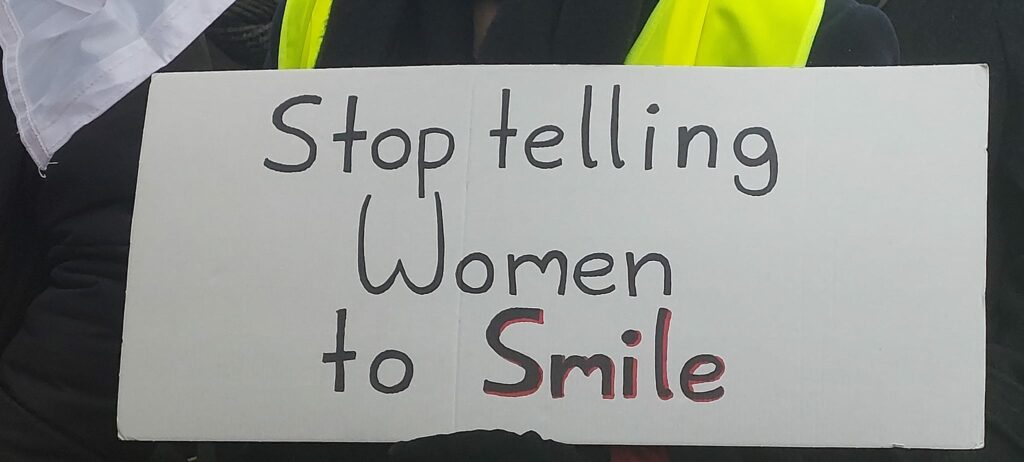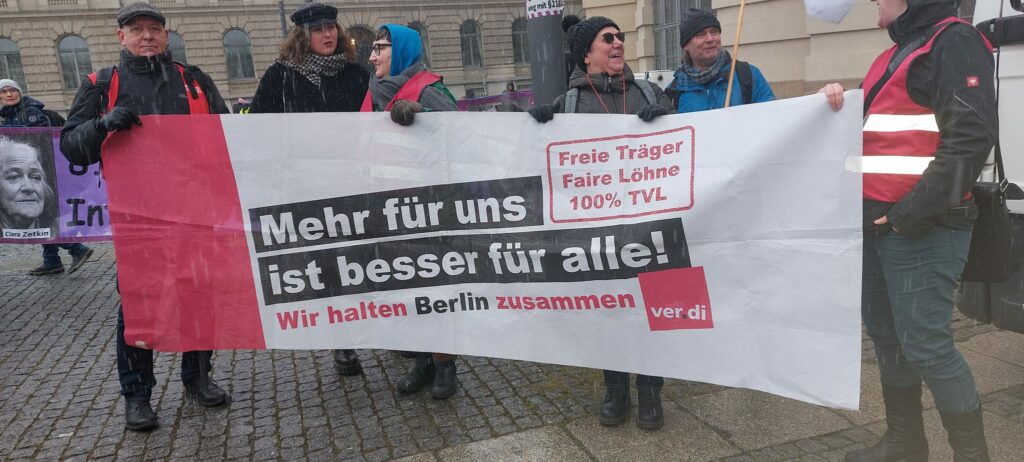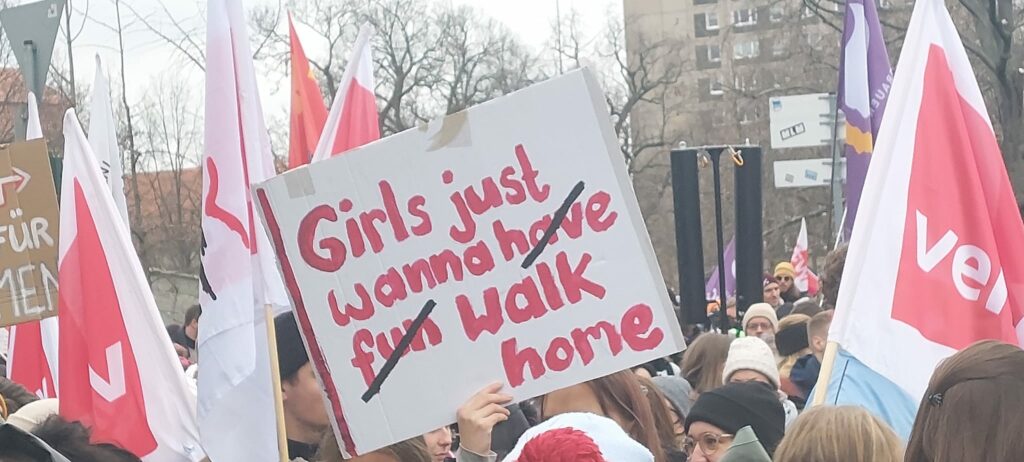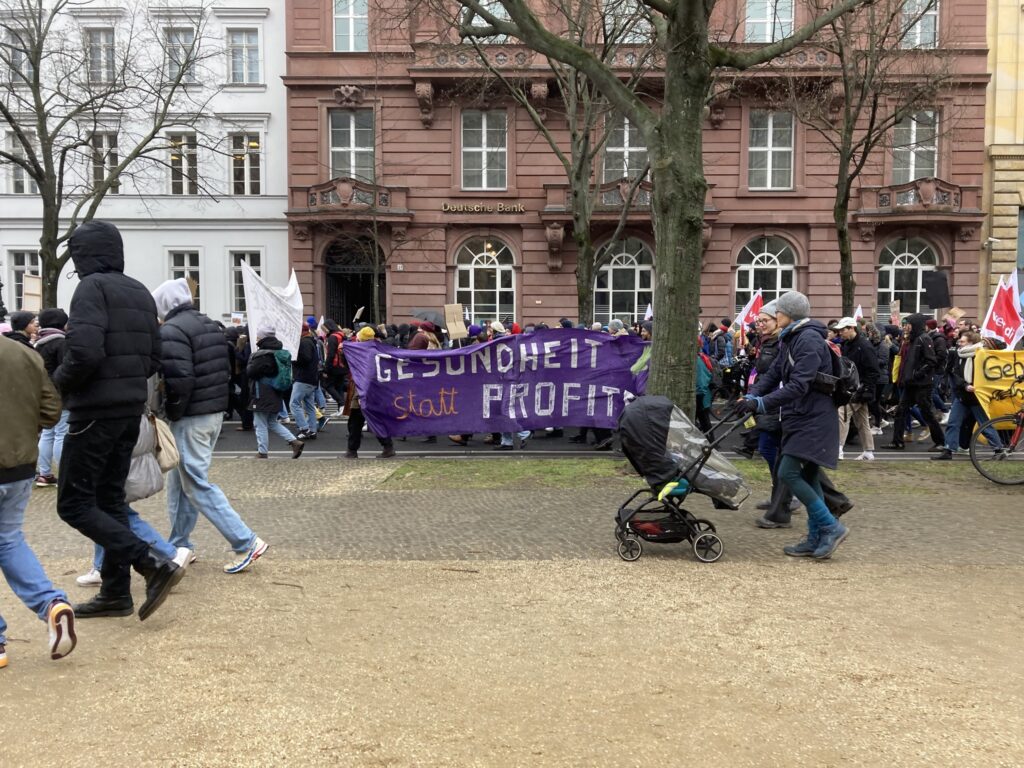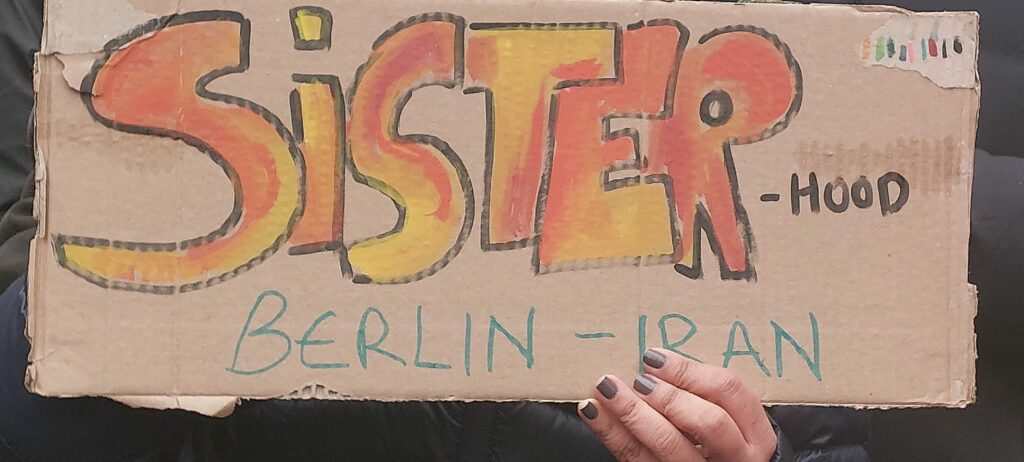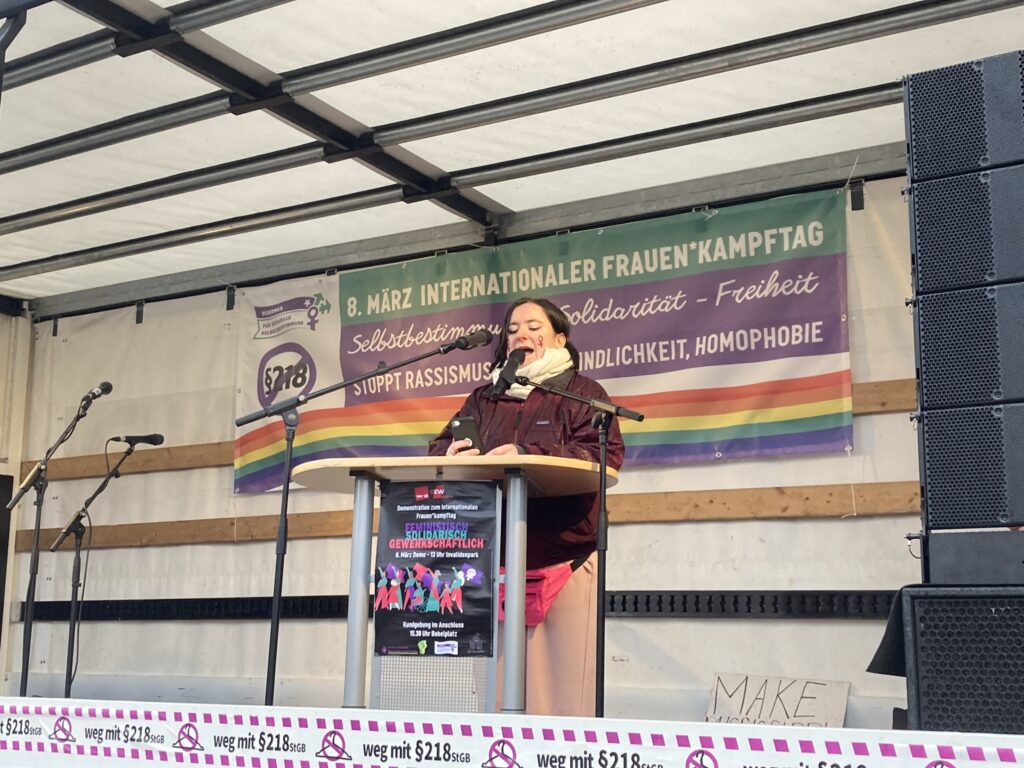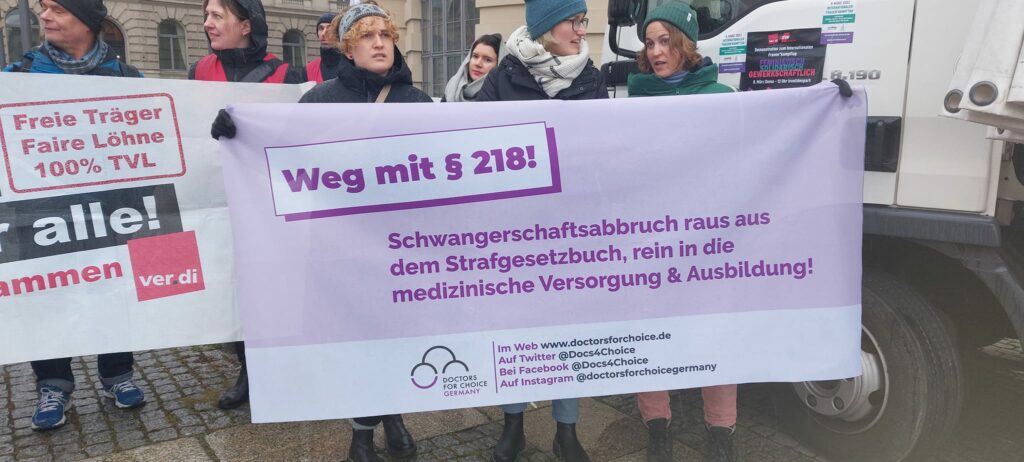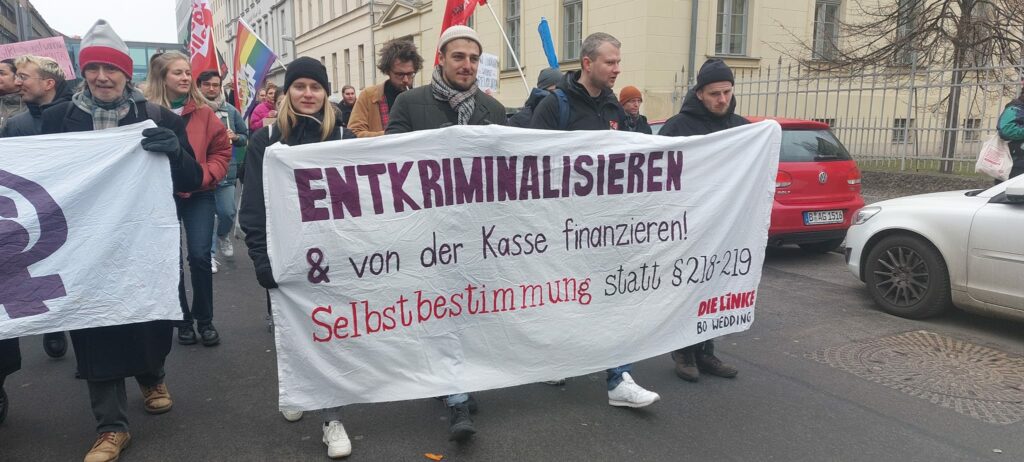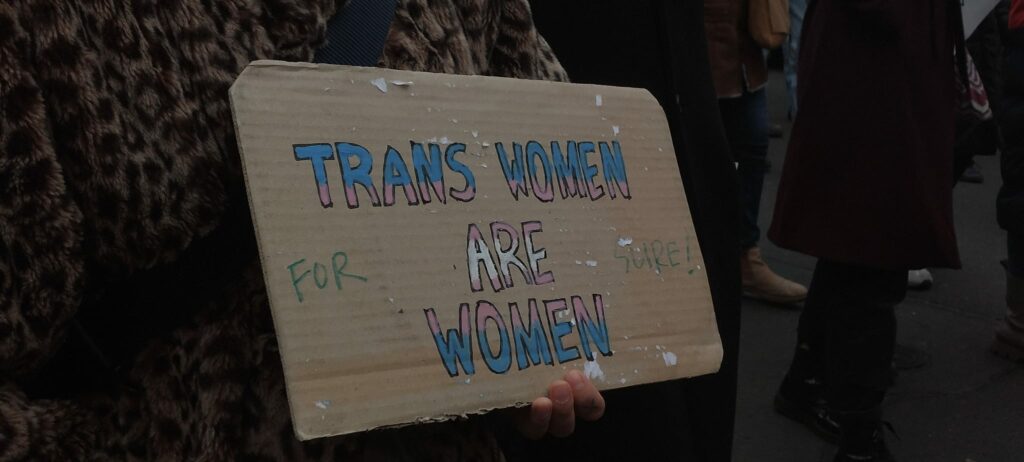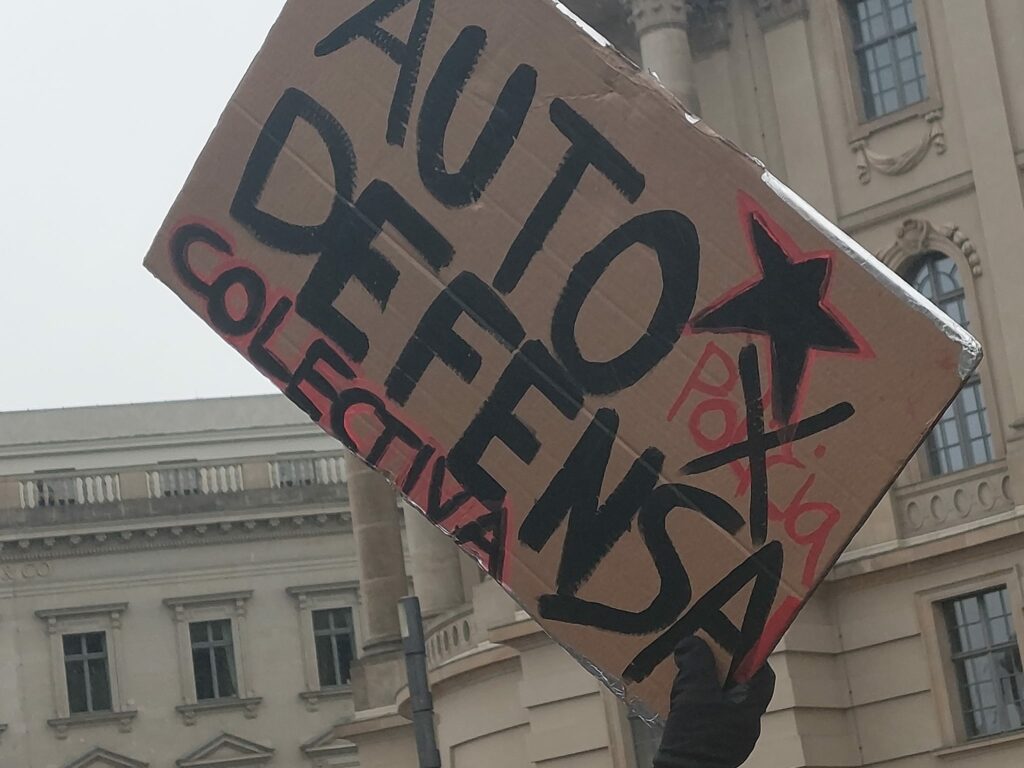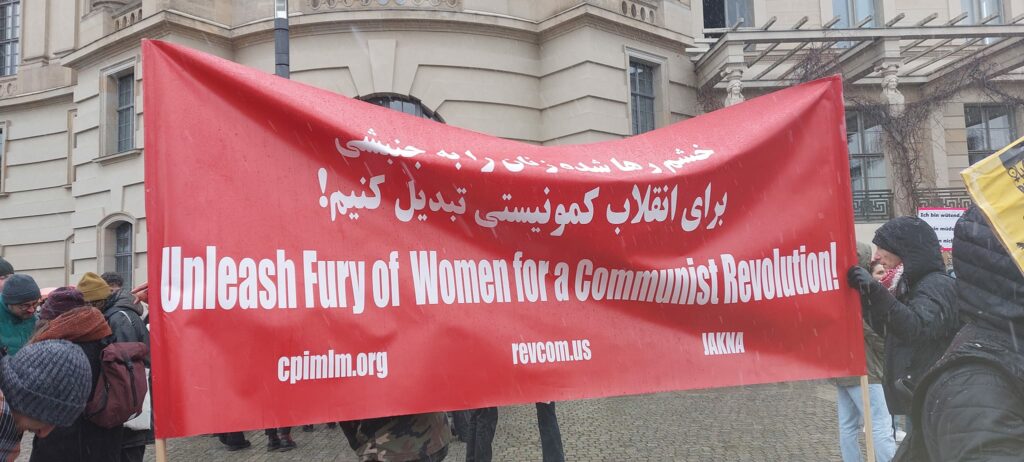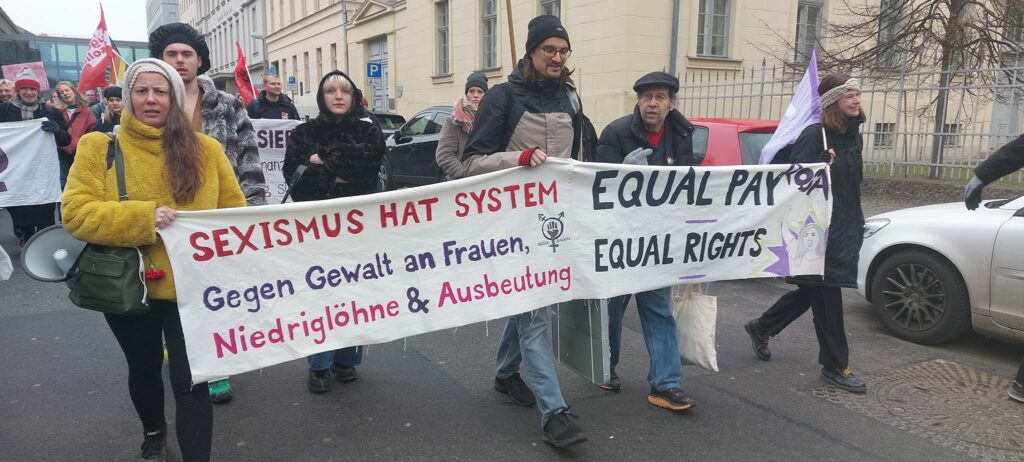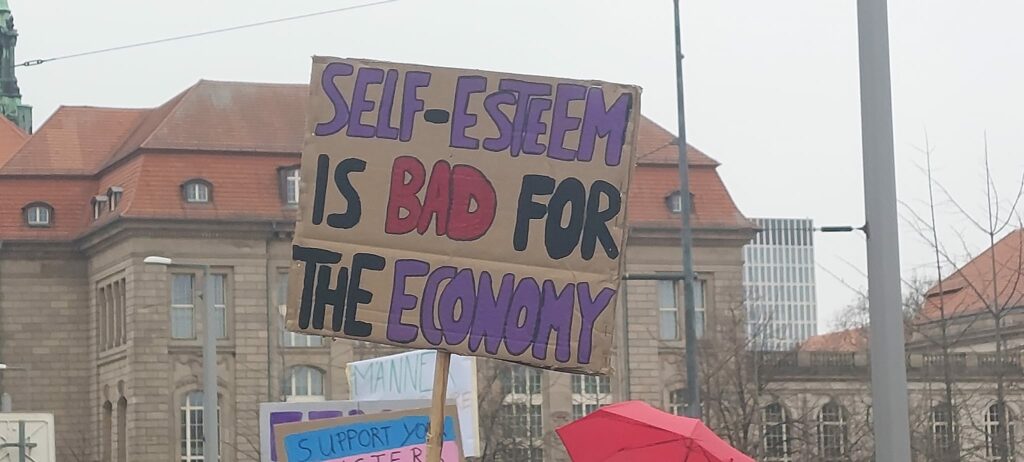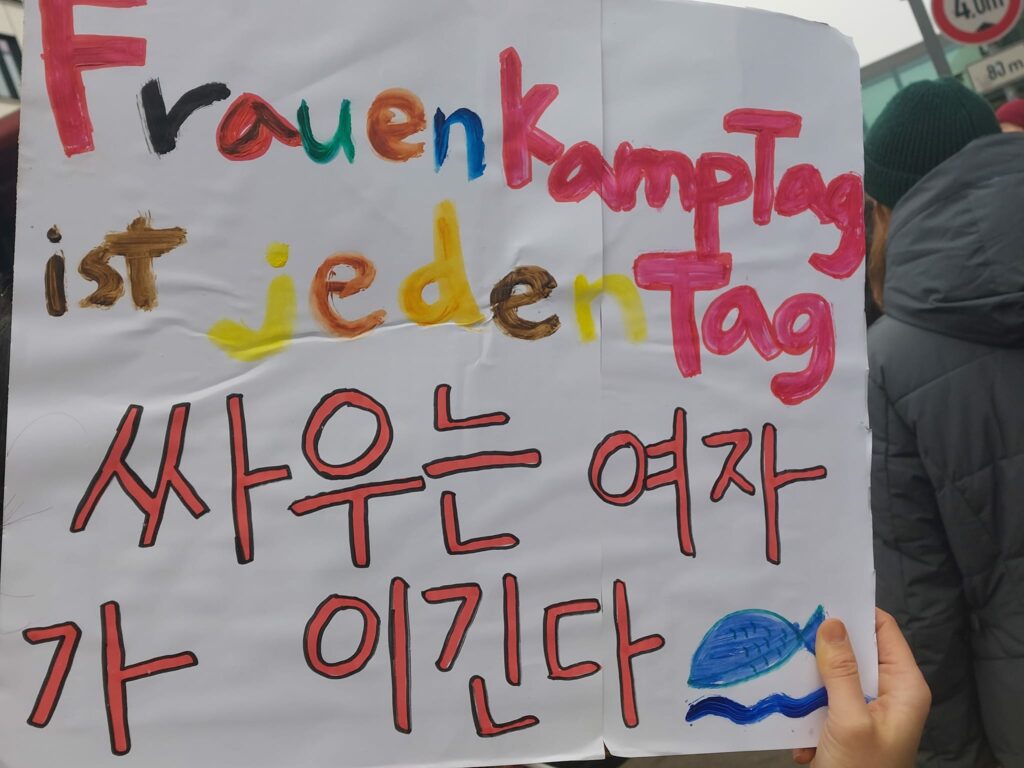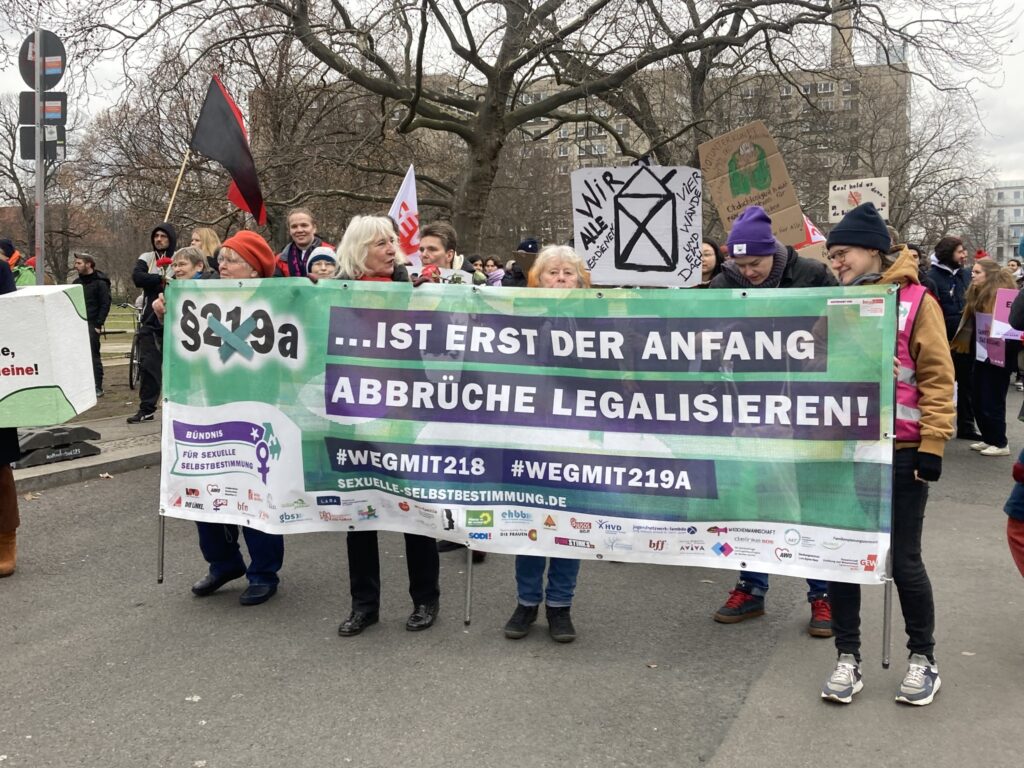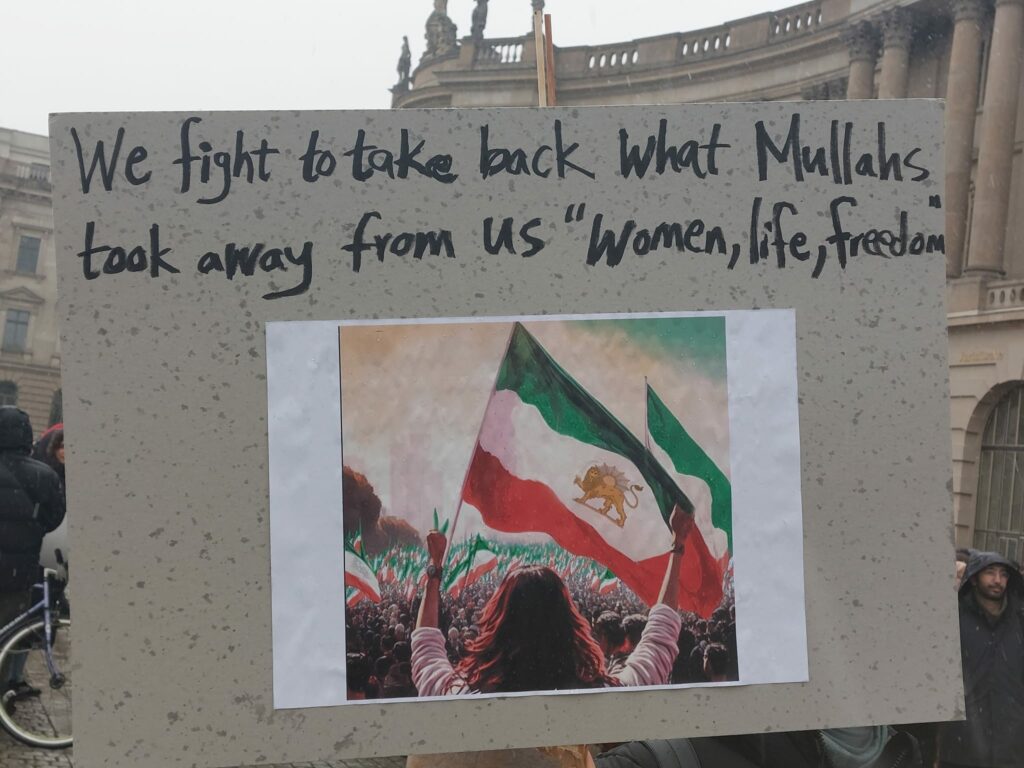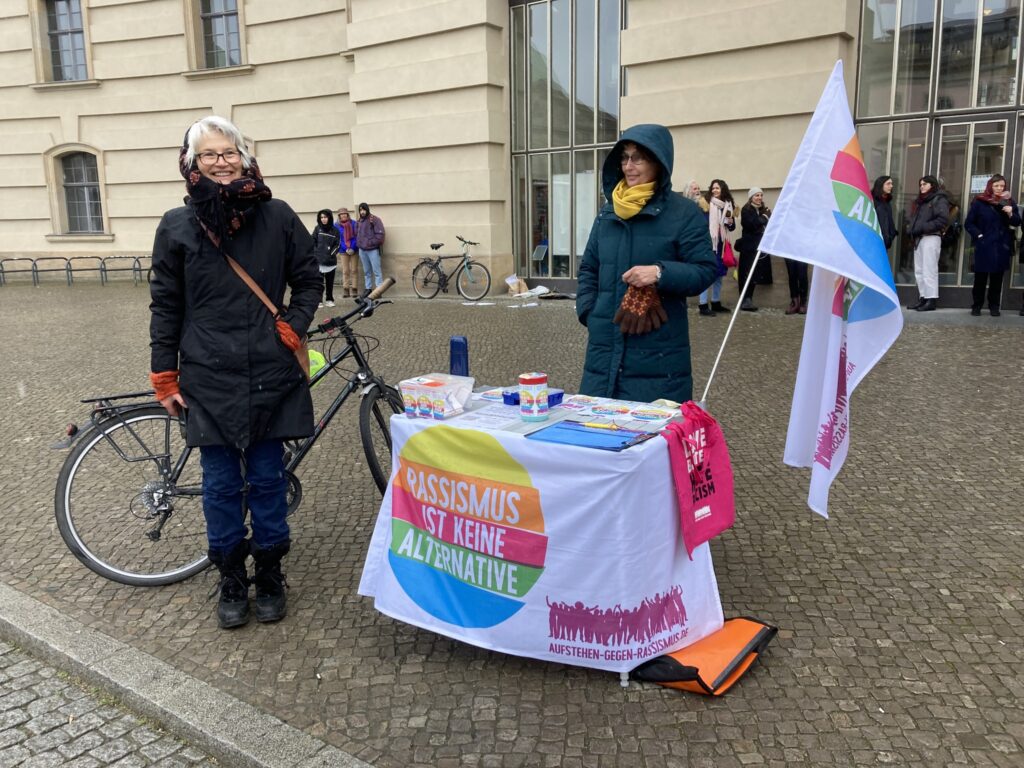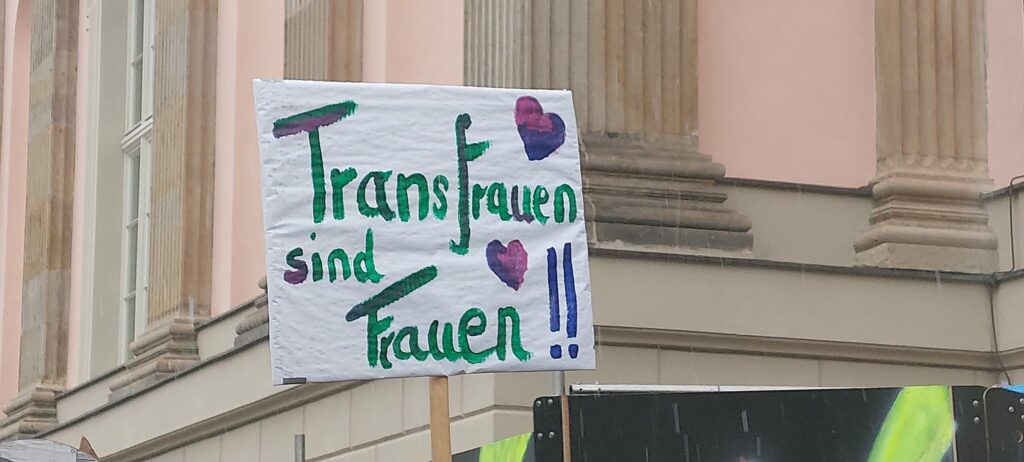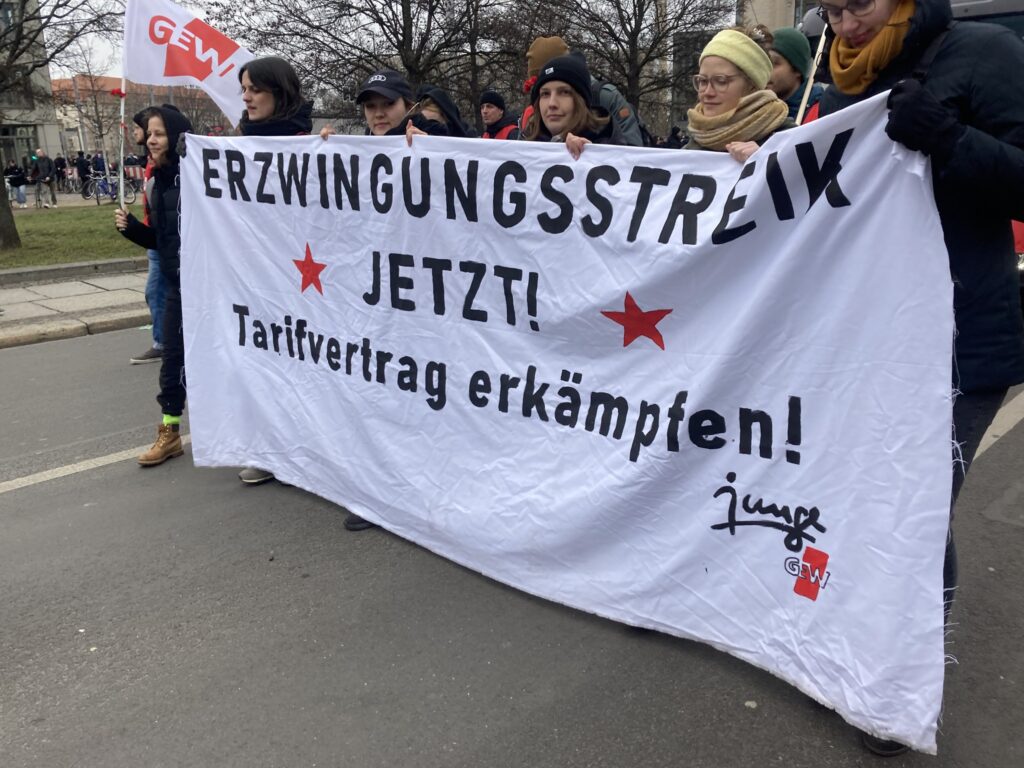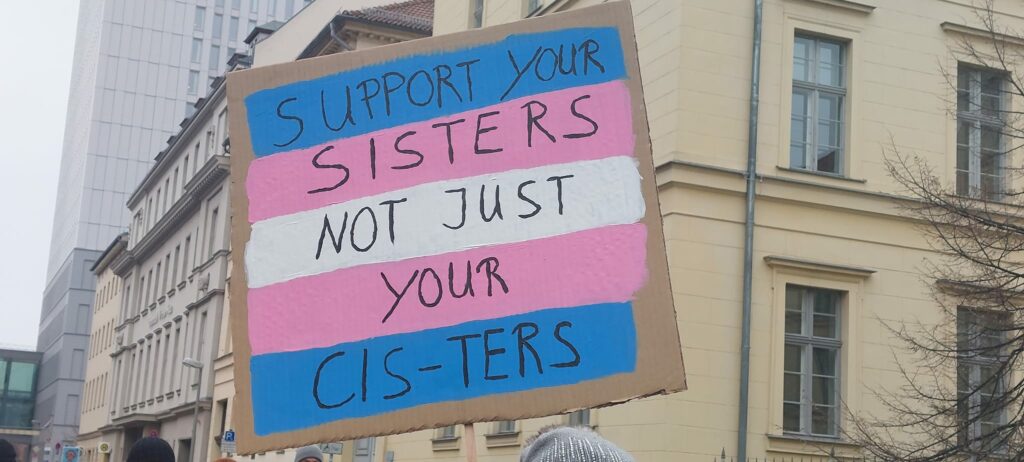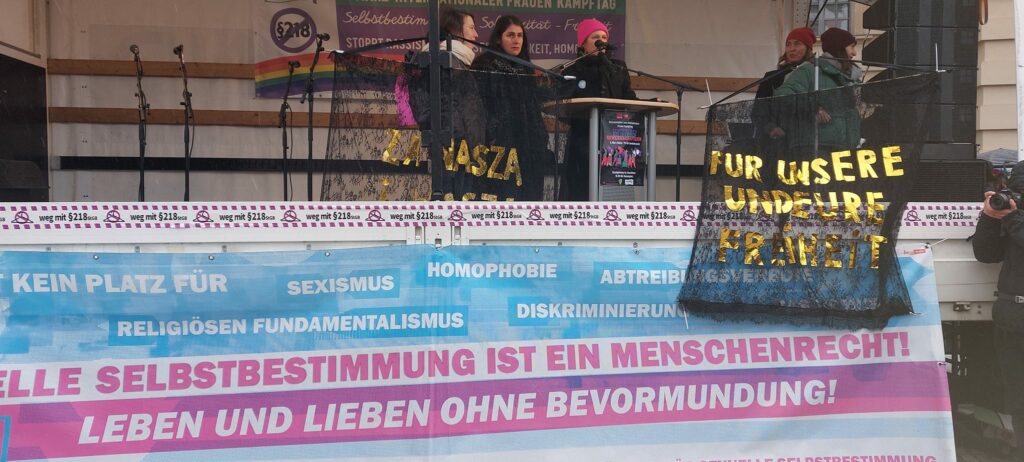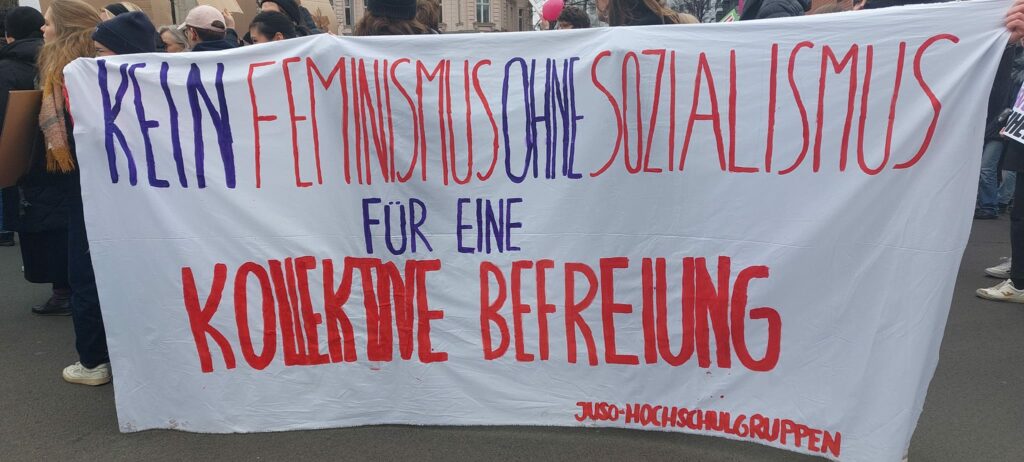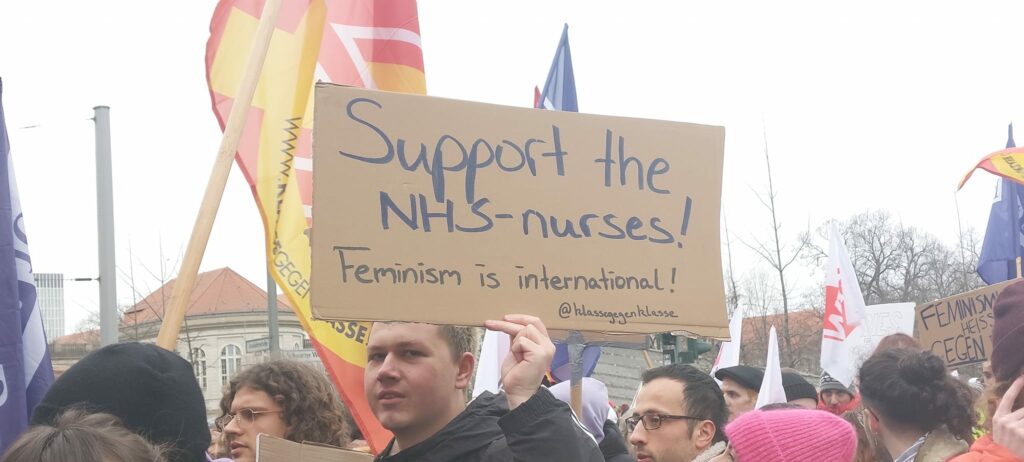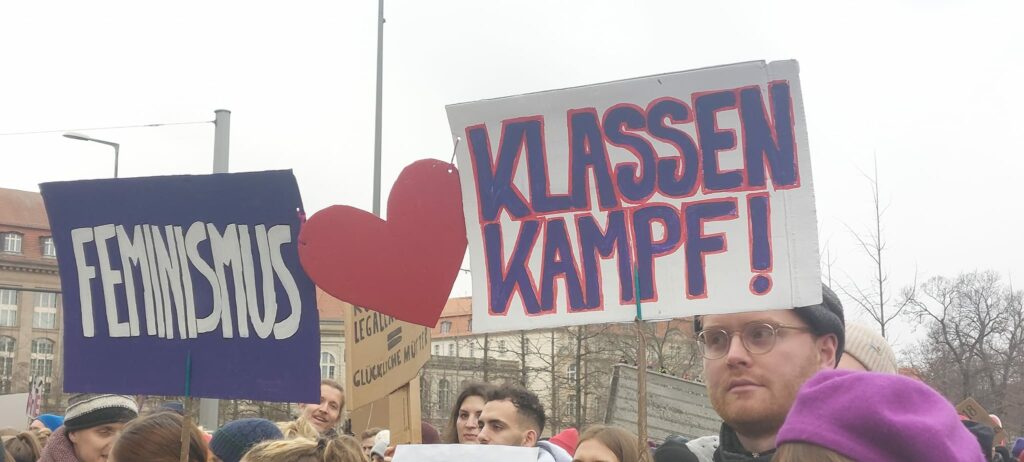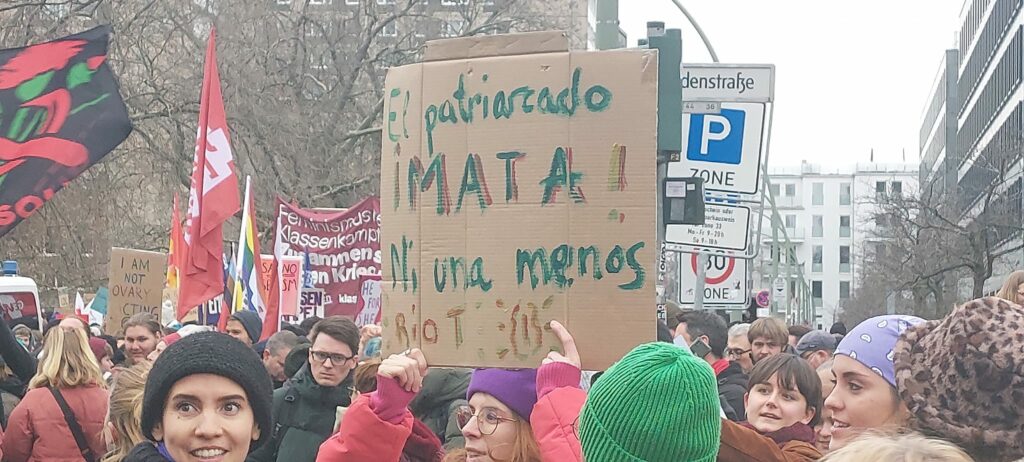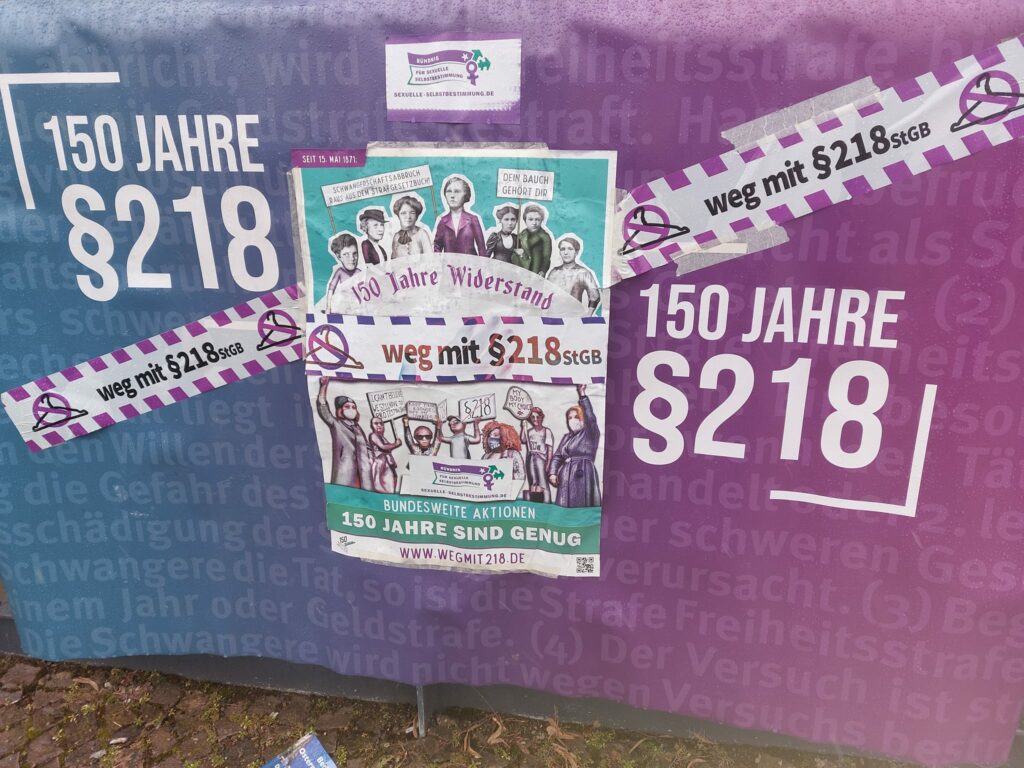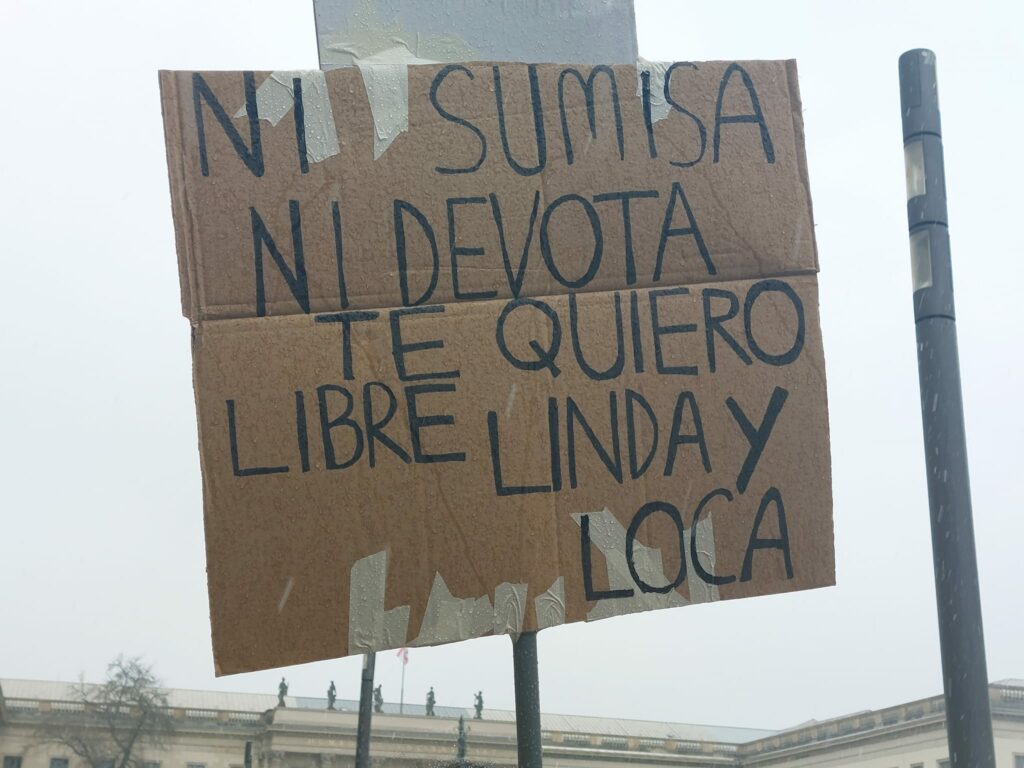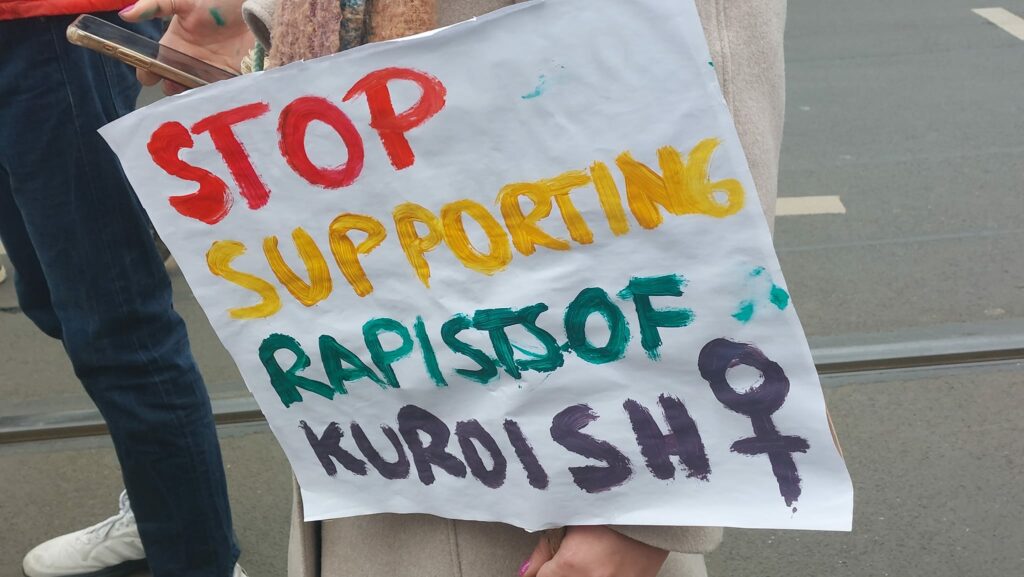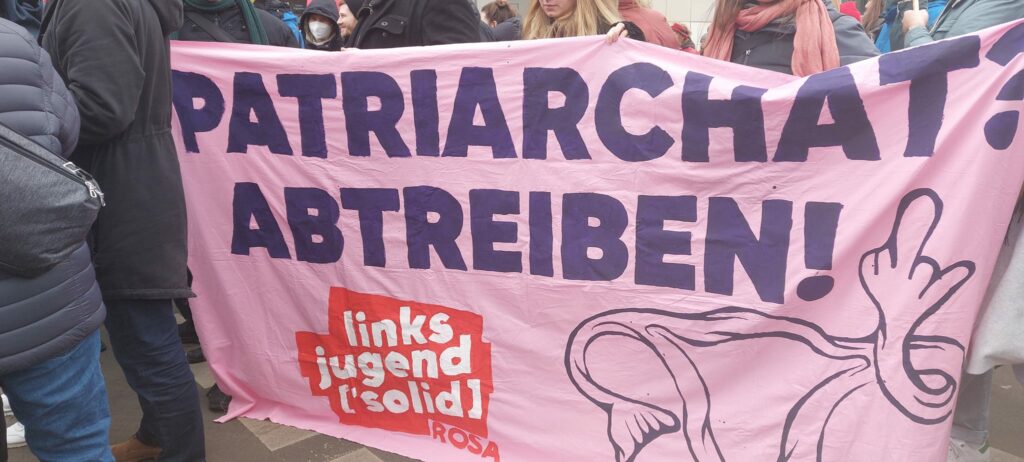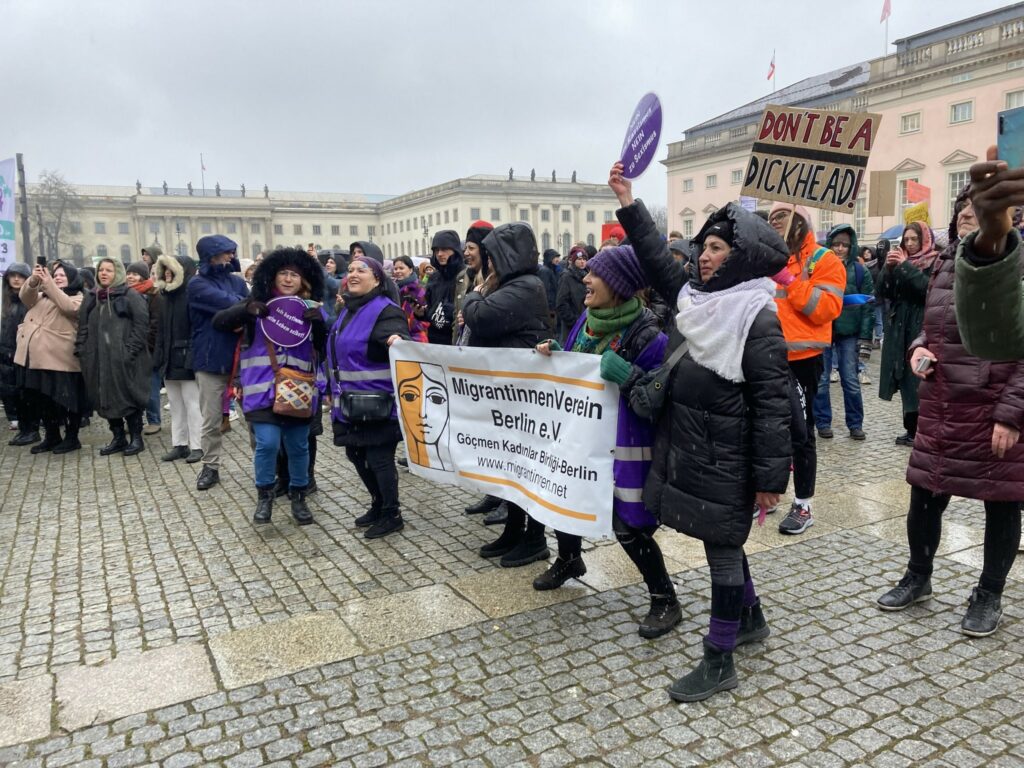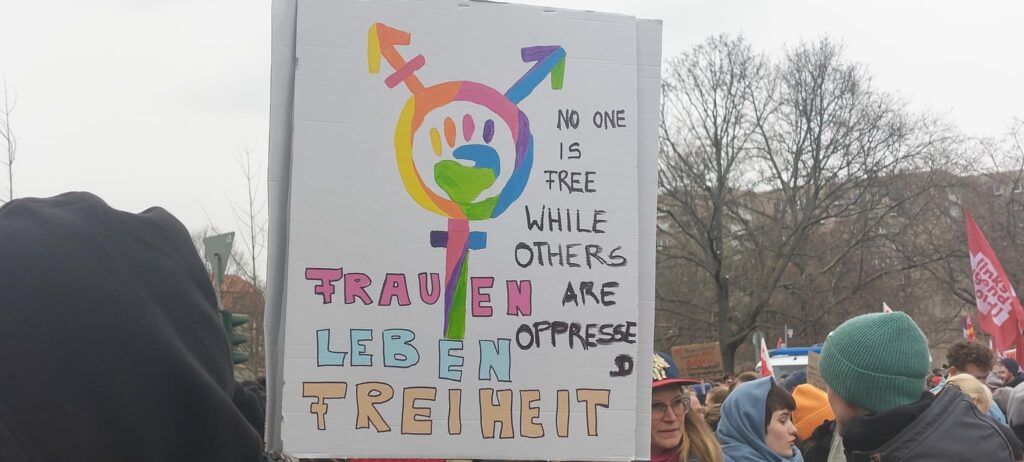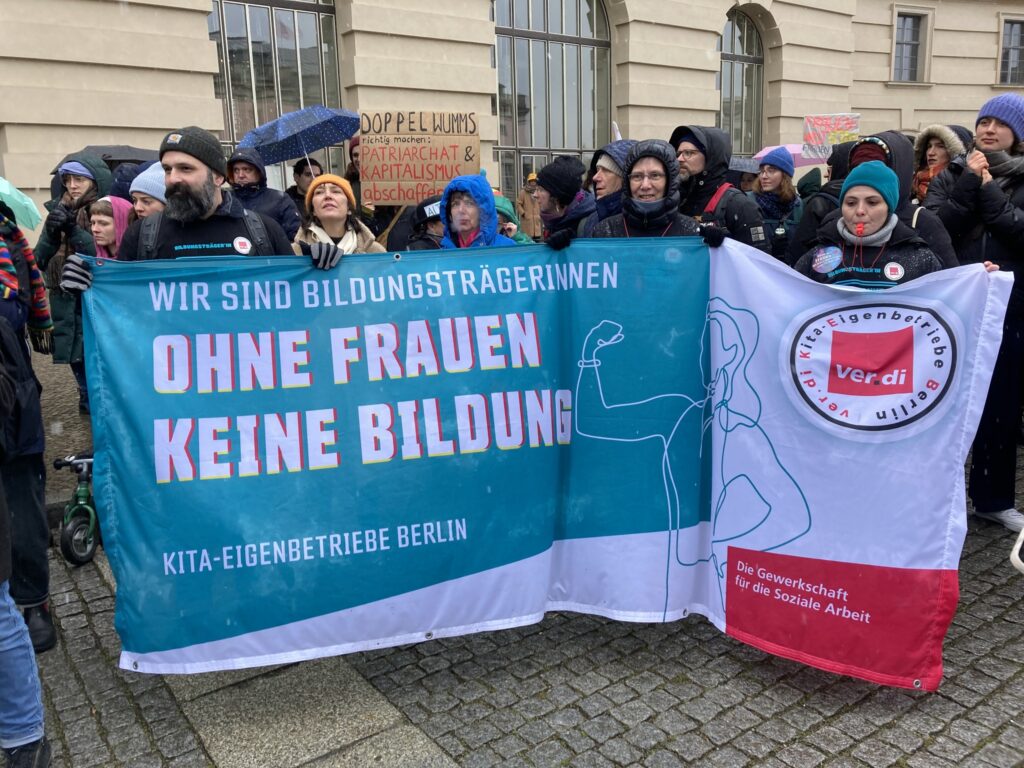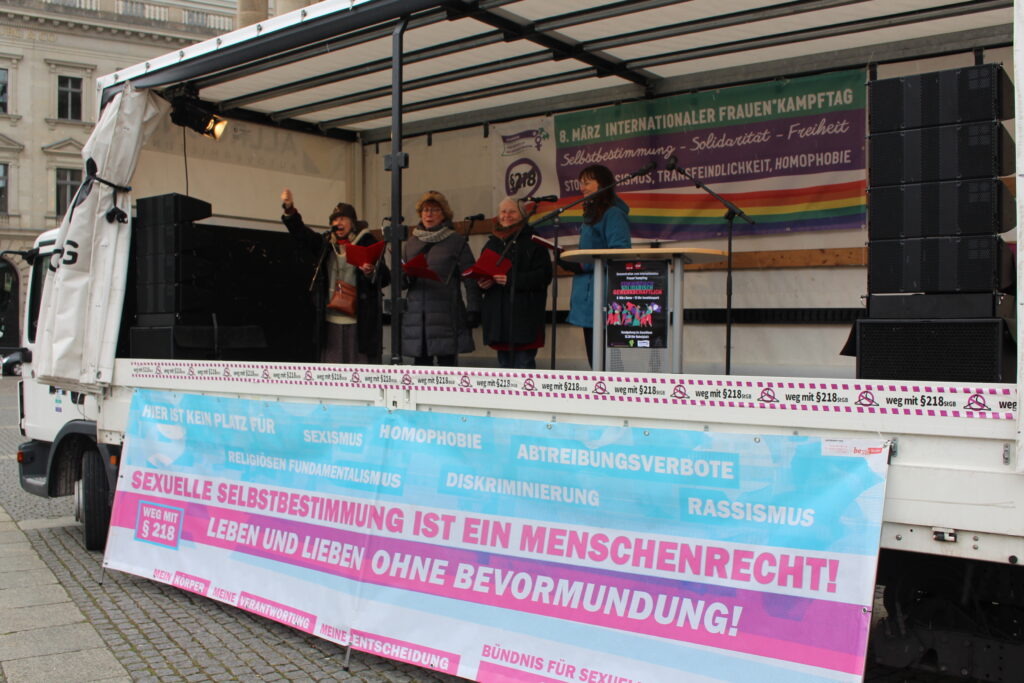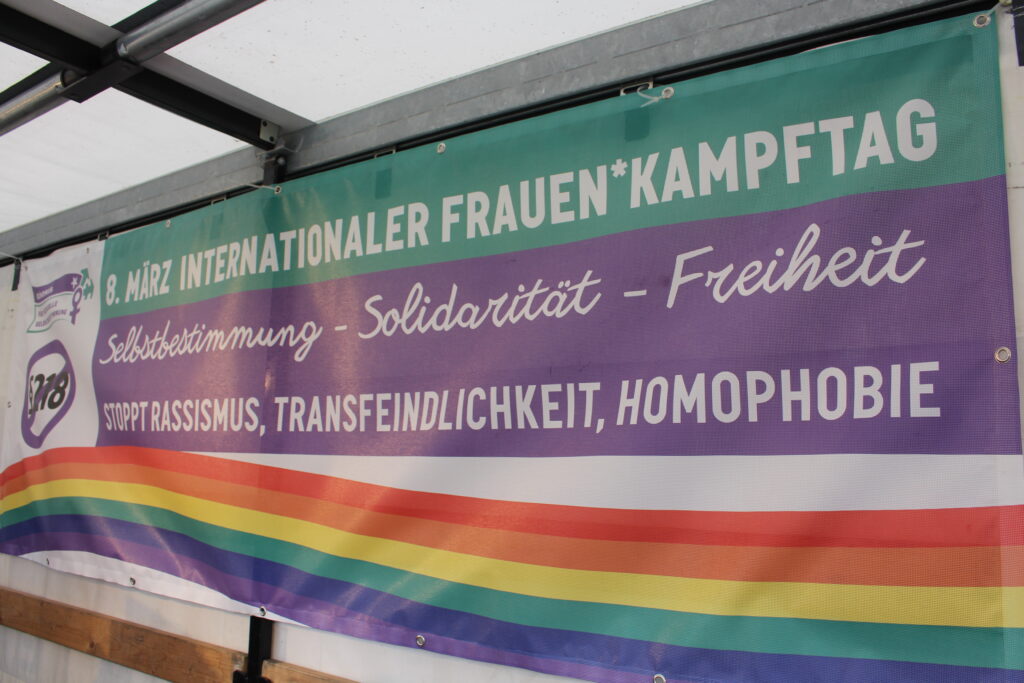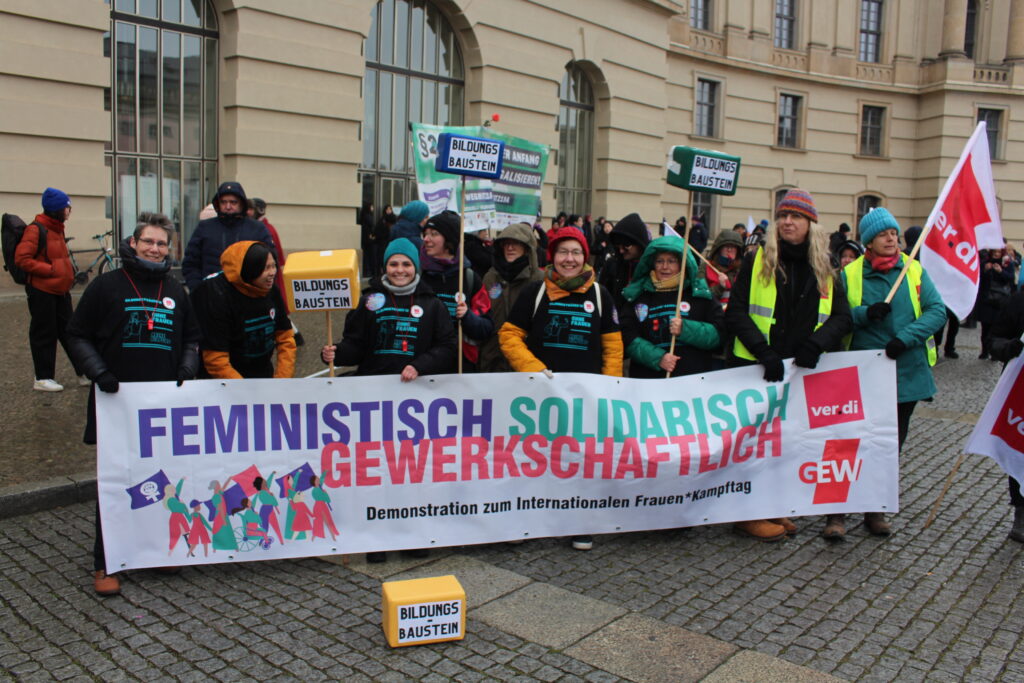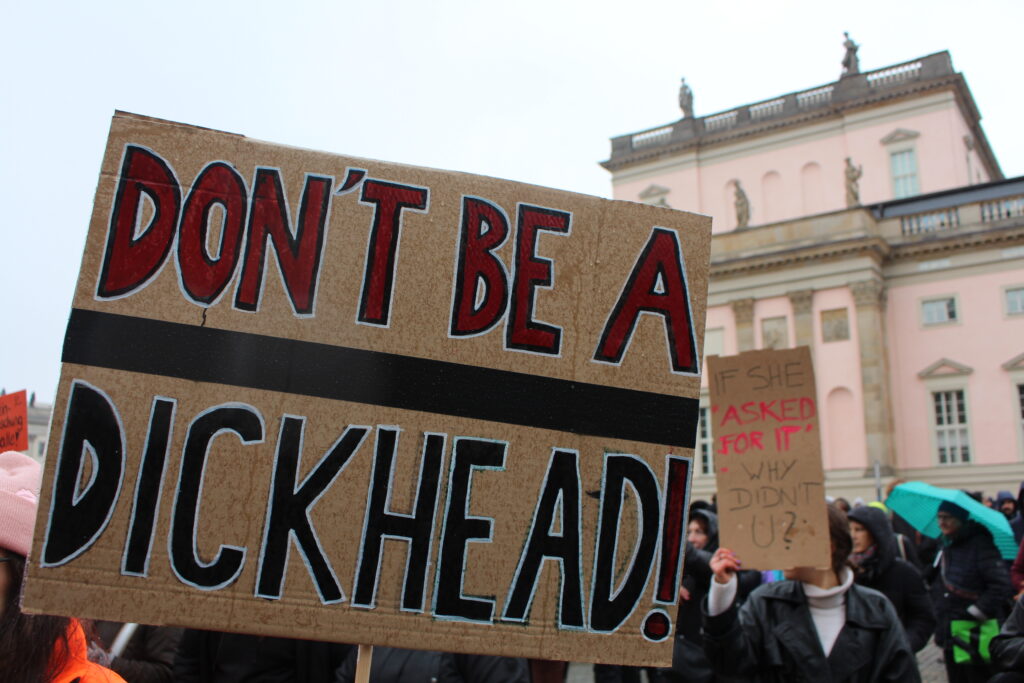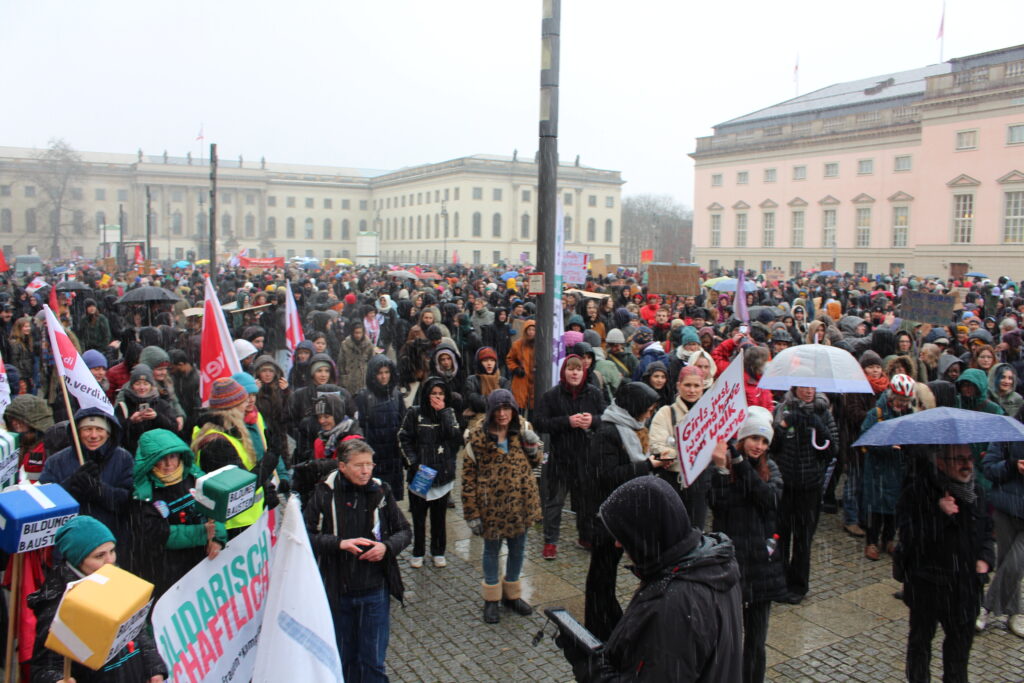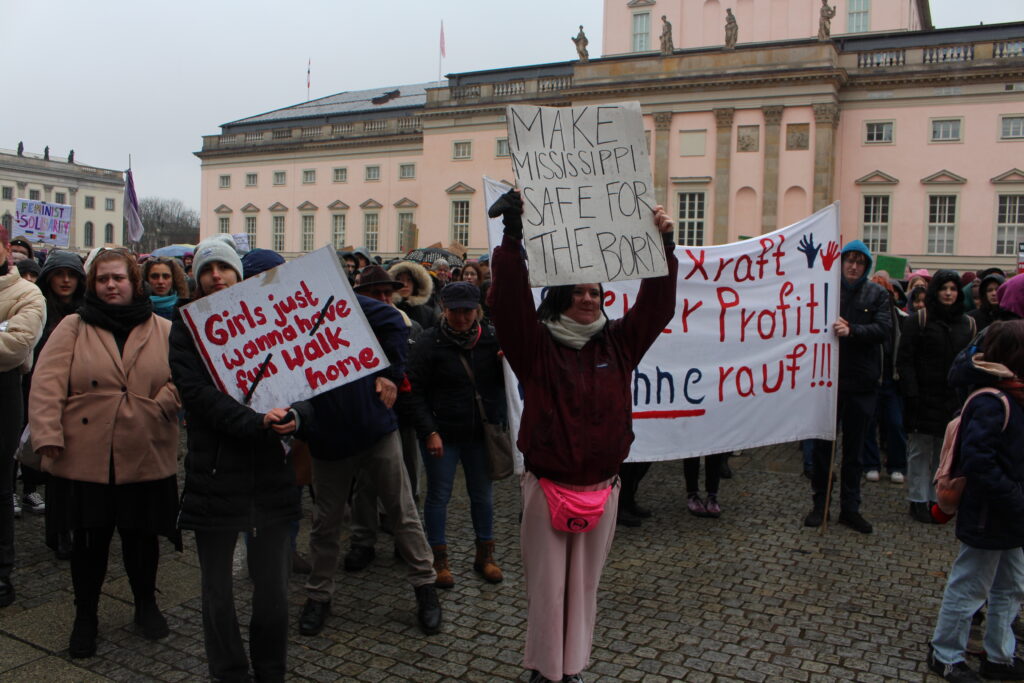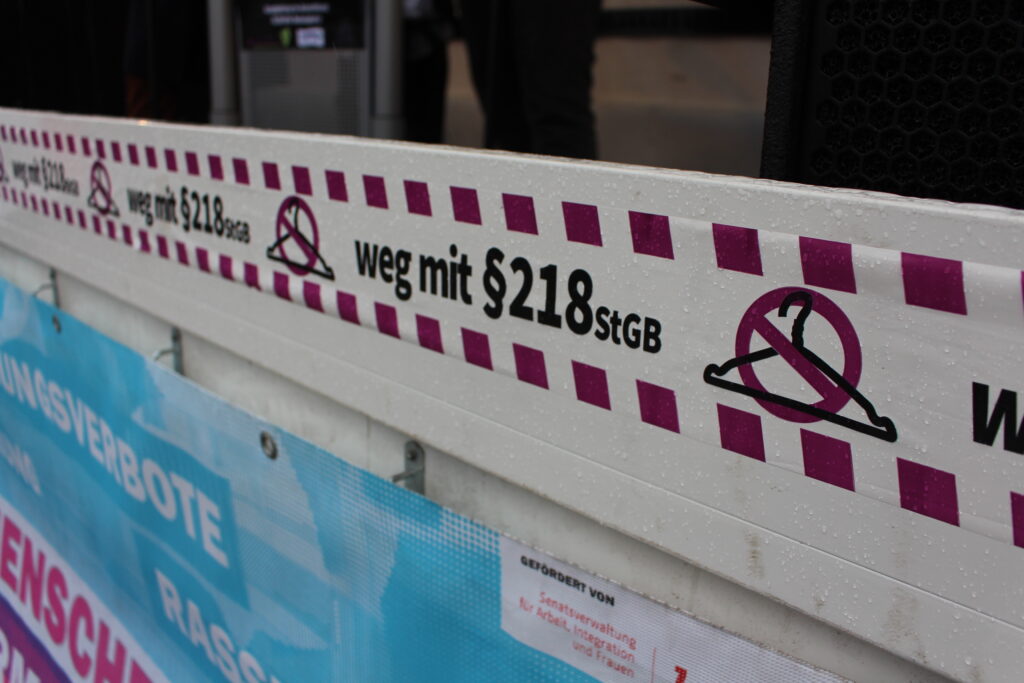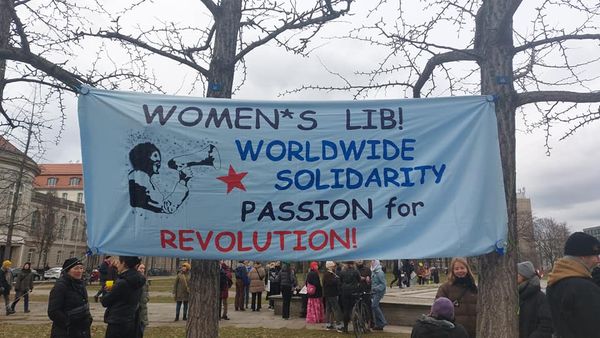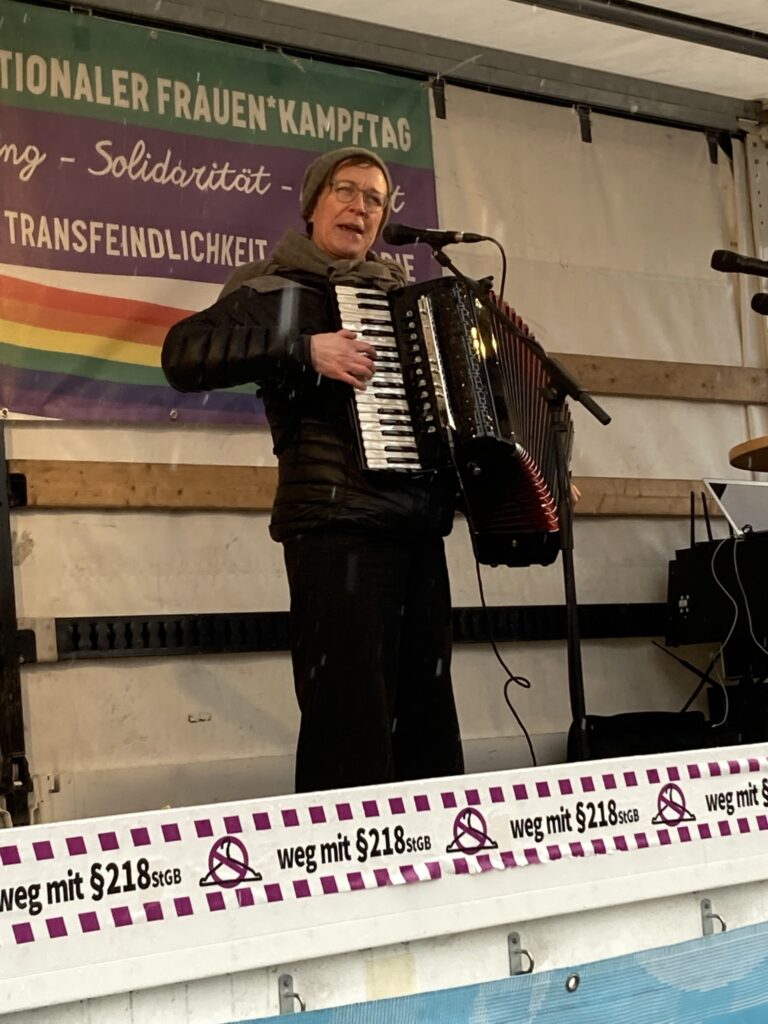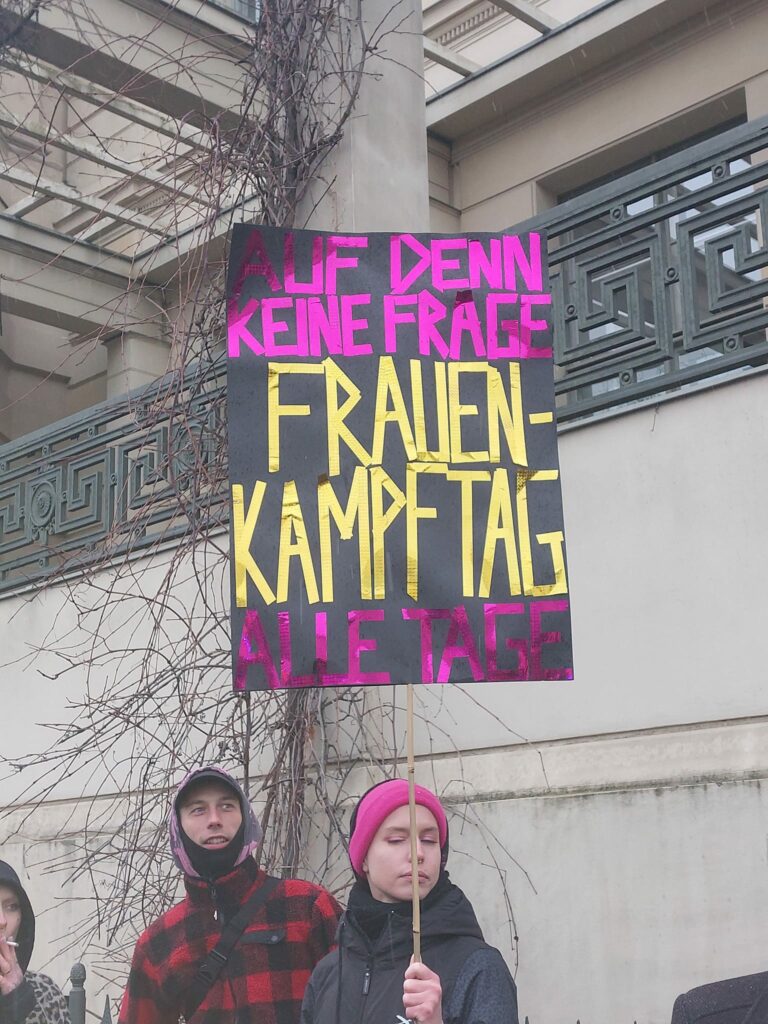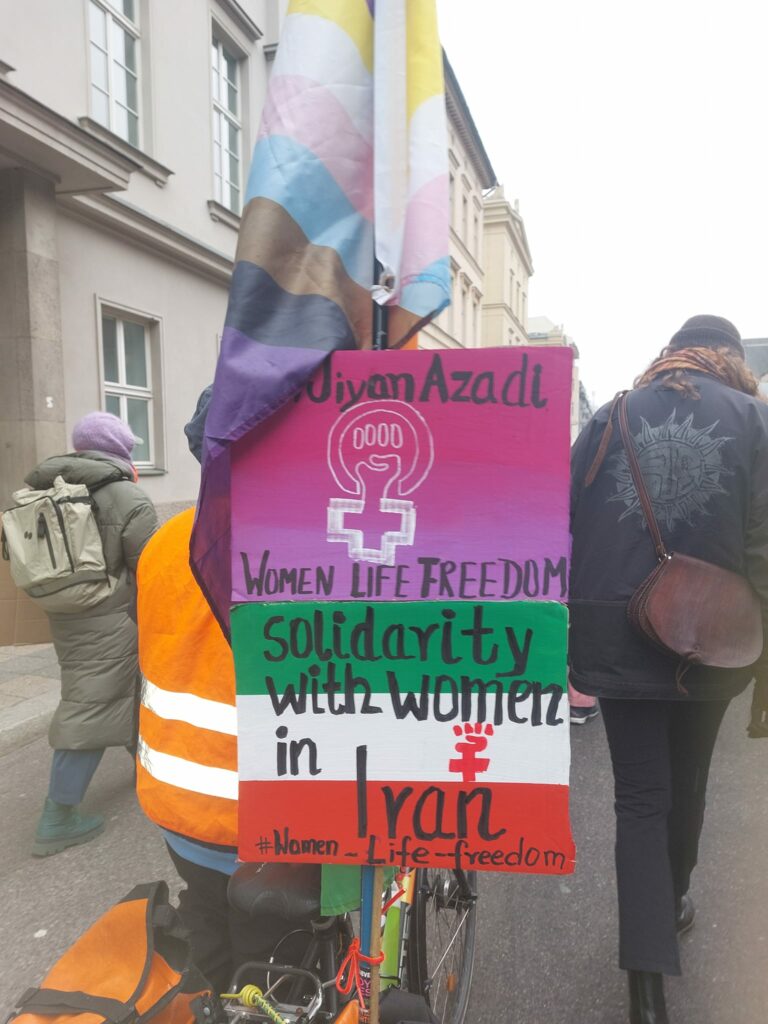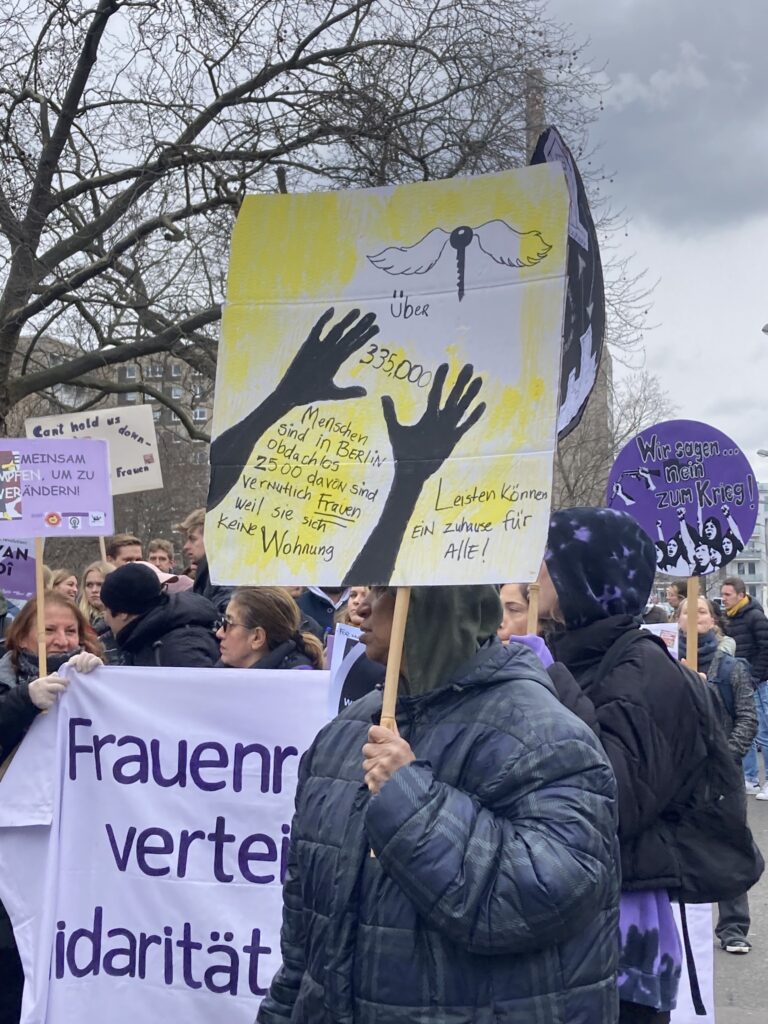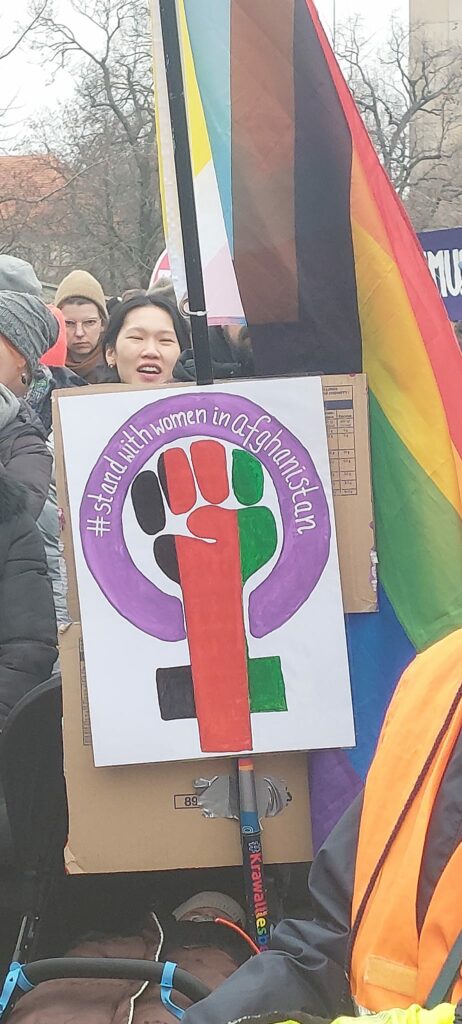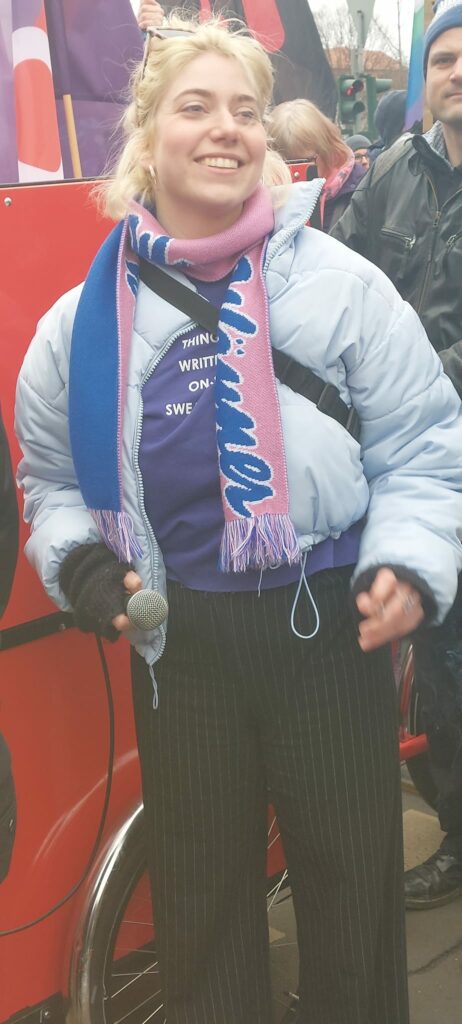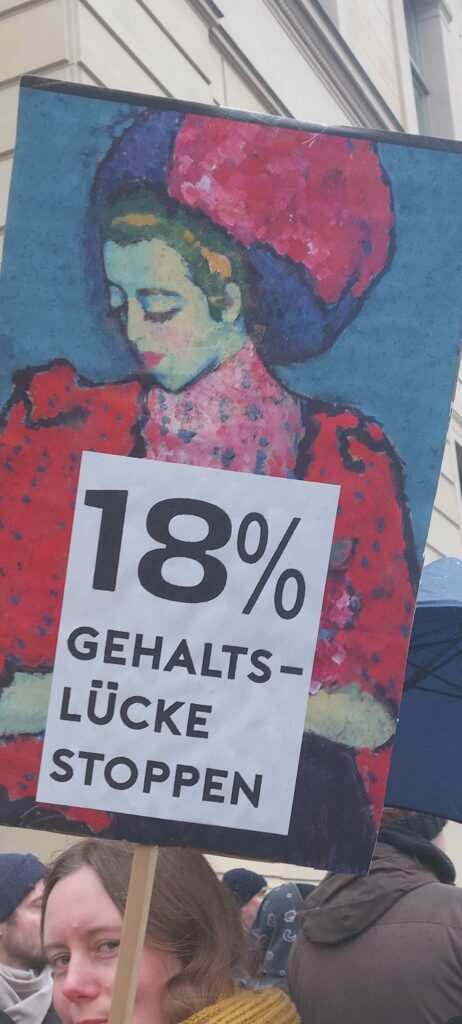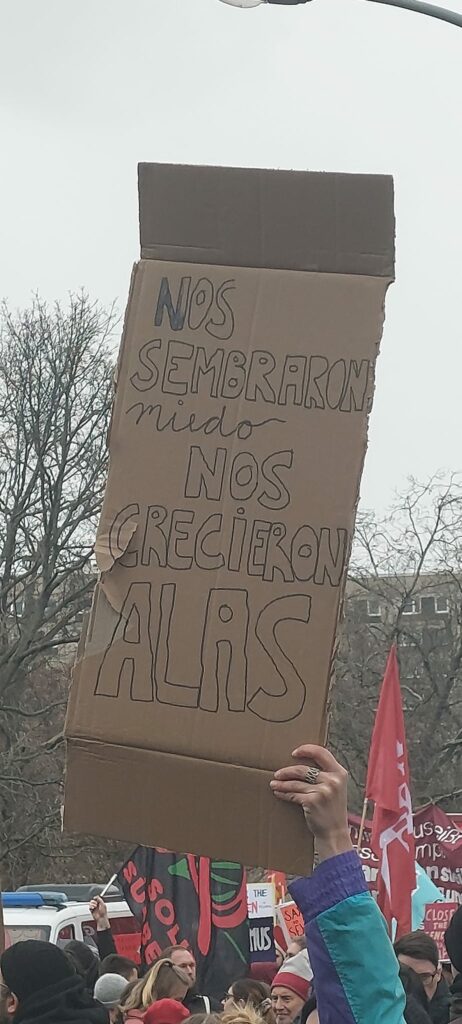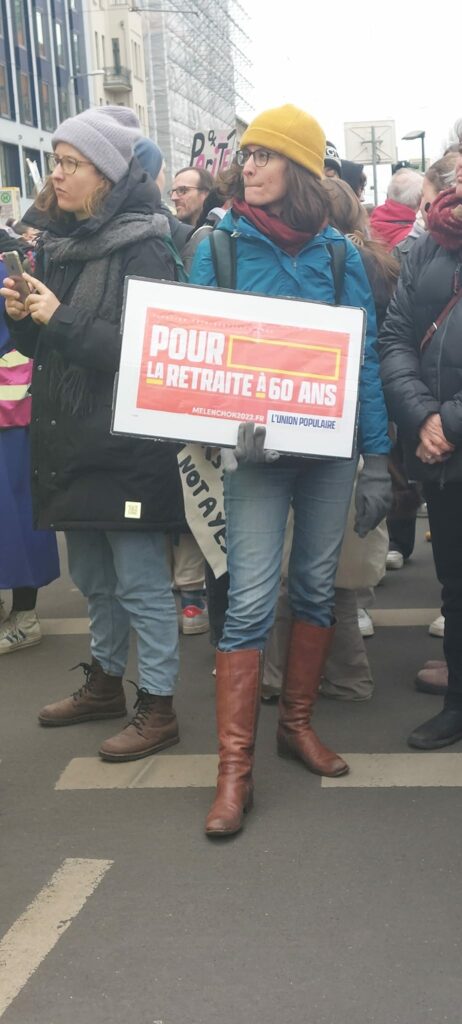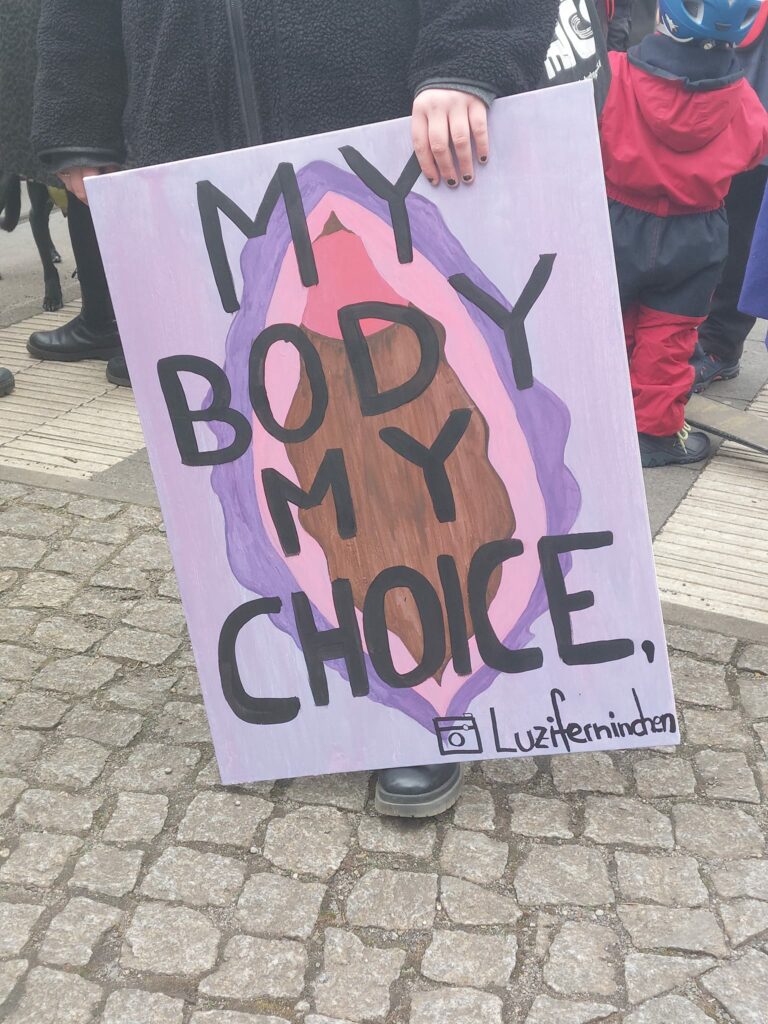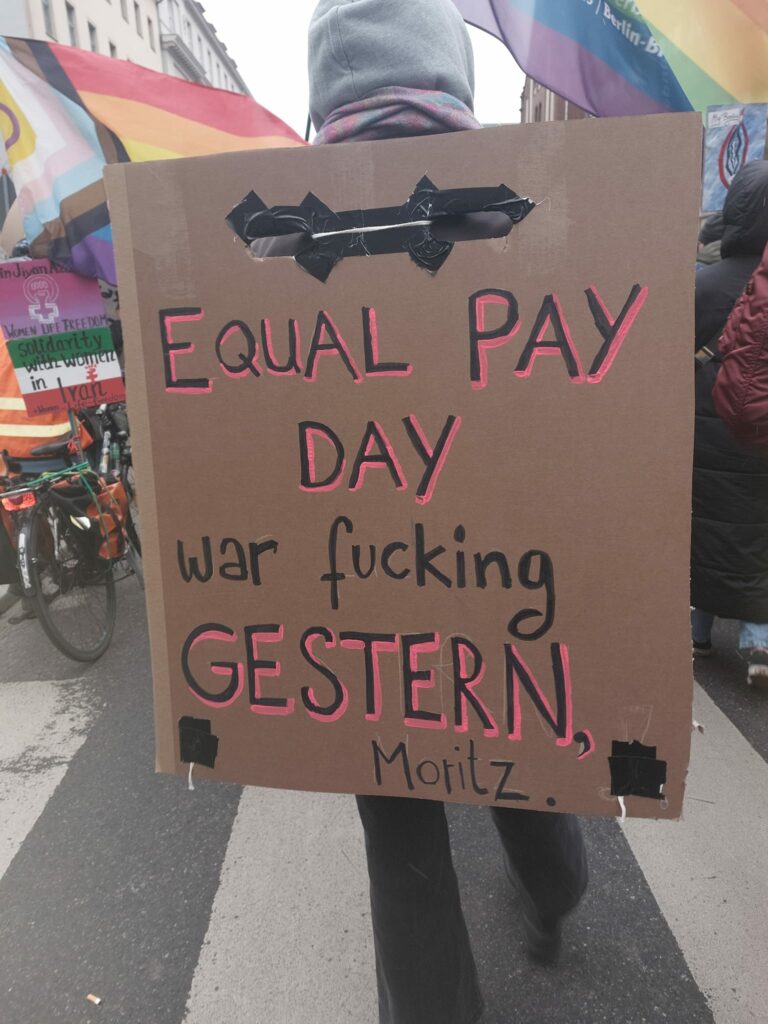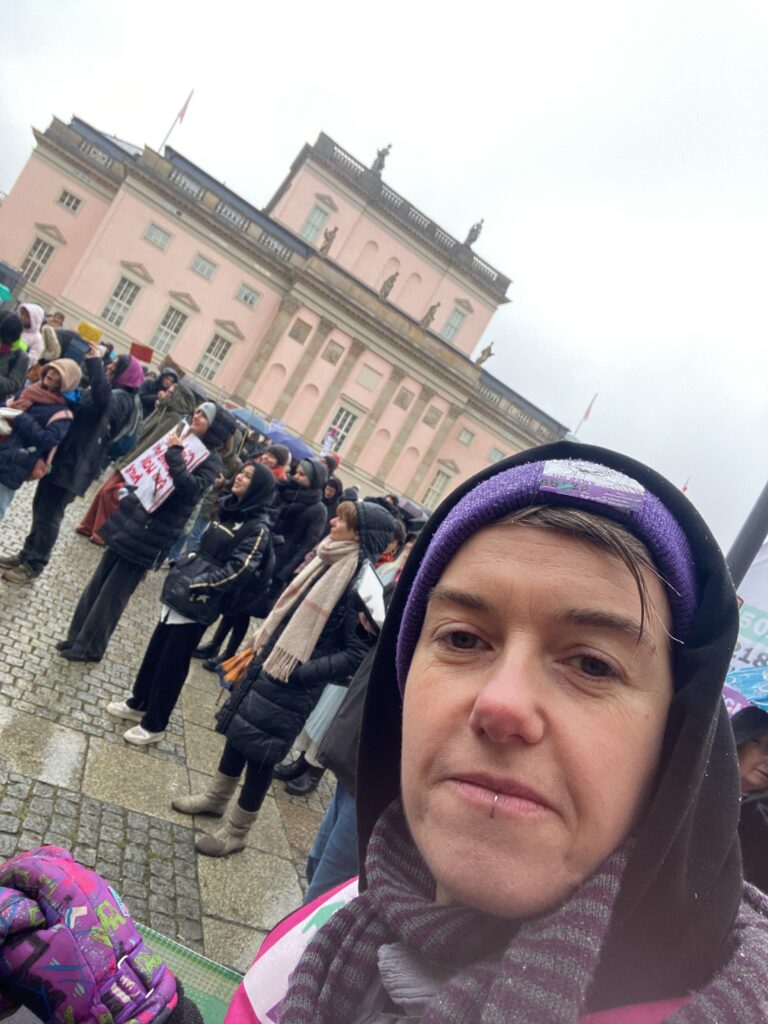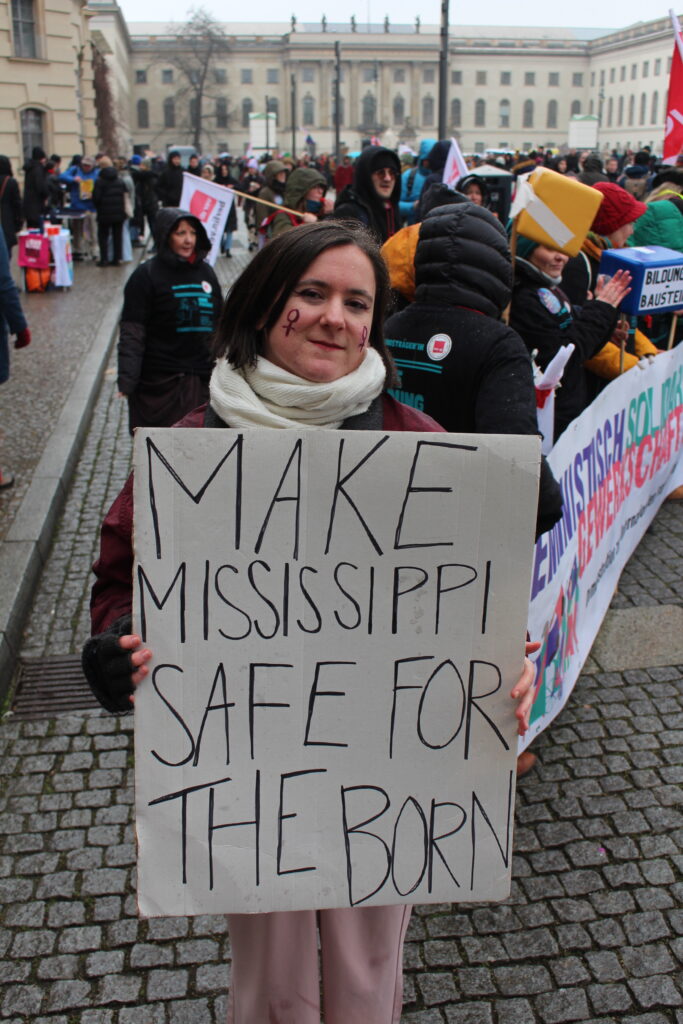Questions: Phil Butland
Hello Adam, thanks for agreeing to talk to us. Could you start by briefly introducing yourself?
A lot of my identity has been thrown into a state of doubt recently. But, I’m a white man who’s 52 years old. All my ancestors come from Lithuania in Eastern Europe. So I come from a puddle of an Ashkenazi Jewish gene pool.
My father’s parents left Lithuania at the turn of the century, my mother’s parents left in the early 1930s. They certainly had more of a sense of urgency because of the pogroms and the visible rise in the danger of staying. My grandparents all landed in South Africa with 250,000 to 300,000 other Jews from that area. And I grew up in that Jewish community.
I was born in 1970, at the height of apartheid. My grandmother spoke Yiddish, she never quite learned English. So a lot of the conversation between my mother and my grandmother was in Yiddish. I was sent to a Zionist Jewish religious school. I studied Hebrew there, I wish I’d been learning Yiddish. The two languages I learned at the school were were the two worst languages in terms of their political implication: Hebrew and Afrikaans.
I’m lucky that my older brother Paul was incredibly politically active in the anti apartheid movement. He was amongst the small group that set up something called the “End Conscription Campaign” or ECC. In South Africa, there was compulsory conscription for white men, just as there is for Jewish people in Israel. So, at the age of 15, I became politically conscious, and then, slowly, more and more politically active.
You’ve continued the family tradition, moving to a few countries, and you’re now in Berlin. What brought you here?
I left South Africa before the end of apartheid, as there was still conscription. I went to London for a year, then I was fortunate enough to be invited to a programme in Italy, I spent about 10 years there, until Berlusconi came to power. That was my first experience of a populist fascist atmosphere.
I then went back to London and started a family. I’m an artist, so got very entrenched in the art world there. Then Brexit started to surface. And with the rise of Brexit came the same populist, fascist xenophobic language.
Literally a couple of weeks after the referendum, I had a show in Berlin. I asked people at the dinner afterwards, how difficult would it be to move with two children and a partner to Berlin. We moved a couple of weeks later, ostensibly for six months, but it’s now been seven years.
So, you escaped apartheid. You escaped Berlusconi, and you escaped Brexit. And then you came to Germany, where you encounter Stefan Hensel. Hensel has a government post for fighting antisemitism in Hamburg and wrote in die Zeit that you are a “hateful antisemitic person who supports terrorism against Jews”. What could you have done to deserve this?
Hensel wrote a number of pieces in die Zeit, taz and a few online things. That quote sounds like an amalgamation of the things he said. I actually buried my mum around new year and returned here to find out about these allegations.
I was urged by a number of trusted colleagues and friends, who really understand the kind of political landscape of Germany, to respond to those allegations because they were libellous and defamation of character. They were all over the press and remained uncontested. I had to invest the next two months of my life galvanizing support. The international press was very receptive, especially the Art Press, which allowed me a platform to publish my response to these unsubstantiated allegations.
Between you and I, when you were a kid, and bullied at school, and somebody said something nasty to you, you lie in bed, and think: “I wish I had said that to him”, or “I wish I had taken a baseball bat and…. I have those private fantasies, but honestly, to focus too much on this petty bourgeois bureaucrat is dangerous. That is their strategy – to reel you into a very provincial battle, and to divert your attention as an activist away from the real struggle which is what brought you to their attention.
As far as I’m concerned, my duty is not to expose this person’s hypocrisy, or the fact that he is using a very common strategy called gaslighting, which we white men aren’t very familiar with as an experience, but every Palestinian lives on a daily basis. I was offered very powerful legal representation pro bono, but I knew it would suck a lot of energy, and take a lot of time. It would be a very exhausting process. And to what end?
The fact that my work in Palestine, made me a target of his propaganda means that this work is achieving something. I need to concentrate on that, rather than defending myself against these ludicrous allegations.
Have the attacks affected your work, for example in the commissions which you have received?
Yes. I was scheduled to have a show in Kassel, which is where the Documenta festival takes place. That show was cancelled because the director felt that my involvement would be too troublesome. It wasn’t my work that was problematic. It was my political position that made them decide to not show the work.
For four months, I was working on a grant with a particular institution. Suddenly that was also denied. I don’t want to come across as a victim here, but to answer your question, yes, definitely, I lost work. My six year contract as a professor in Hamburg ended last October. I don’t think I will find another teaching position in this country.
I don’t think it’s about you being a victim as an individual. But there have been number of cases in Germany, particularly since the Bundestag passed a resolution which has no legal value, but implies that BDS is the same as antisemitism.
You’re the first person who’s clearly stated it has no legal standing. It was contested and deemed unconstitutional to call it illegal. We must keep emphasising that. But the rumours have spread to the point where a number of my colleagues have had to publicly distance themselves or retract their support for BDS.
BDS is not a movement. It’s a well proven, non-violent strategy that’s been used many times, most prominently in South Africa in the 1980s. There was no moral awakening in the 80s in South Africa. It was sanctions that broke the financial backbone of the apartheid state. They were forced into negotiations.
Can we compare Israel with South Africa? In the 1980s. I was also on many pickets of Barclays Bank in Britain, boycotting people who traded with apartheid. That was opposed by Margaret Thatcher. But activists expected it of you. In contrast, if you advocate similar policies in Germany today, a number of people who should know better will say, “Oh, that’s the same as the Nazi campaign “Kauf nicht bei Juden.” How would you respond to this argument?
It’s kind of counter-intuitive, but we need to have a lot more sympathy for Germans in order to let them do what they do best: Think. Through the school curriculum, and the endless memorialisation and rhetoric around the Holocaust they have inherited all the guilt and shame for the Holocaust.
It’s now time to interrogate the Netherlands, who shipped off more Jews to the death camps, second only to Poland. Lithuania was even worse. It’s called the holocaust by bullets – most of my family were killed even prior to the arrival of the German Nazis. They eliminated 98% of the Jewish community with their guns in mass graves.
It may sound a bit odd, but let’s have a thought experiment and say: “Ok, everyone in Germany, you are no longer responsible for the Holocaust”. In the name of my mother, and my grandmother, and all of her six siblings who she lost and my grandfather and all of the five siblings he lost, and their parents, you are no longer responsible for that atrocity. Now, let’s look at Israel without that sense of guilt or shame. There are two possible lessons to be learned from the Holocaust. Is it to defend the most vulnerable, whoever that may be or is it to defend the Nation State of Israel at all costs. It is clear which lesson Germany has chosen to learn.
Germany and Israel are both colonial powers. It’s not only the guilt and shame about the Holocaust that makes Germany support Israel. I think there’s the same reason why outspoken antisemites like Pat Robertson and Donald Trump, and many right wing Americans support Israel.
Israel is a colonial project that’s happening in real time. The European colonial projects happened in the 17th 18th and early 19th century, but essentially, they’re the same project. So let’s divert the conversation away from Israel. And talk about colonialism.
Let Germany really grapple with its colonial history, and forget about the Holocaust for a minute. Let the Netherlands grapple with their colonial history that went on until the 1960s – the Dutch killed 100,000 people in Indonesia. That was justified by colonial rule. Because the way Jews and other victims of the Holocaust were treated is not far off from the way the colonised were treated by the colonial powers. And these two forces were almost running concurrently. It’s just that Jews were white skinned and seemingly assimilated that made it seem so atrocious.
We need to have a more kind of complex understanding. It’s not just about Germany’s guilt. If we alleviate them of the guilt and say: “can you start looking at your colonial history in South West Africa?” The very few countries which failed to support the United Nations in condemning Israel’s abuse of human rights were white colonial powers.
It’s recently become mainstream to call Israel an apartheid state. This wasn’t the case 20 years ago. Now, Amnesty International is saying it, Human Rights Watch is saying it, even Ha’aretz is publishing articles about Israeli apartheid. But in Britain, Labour MPs have been banned from making the comparison. And there’s a lot of self censorship going on. You’ve lived under apartheid. How accurate is this comparison? And how useful is it?
It’s not that accurate, because what’s going on in Israel is much worse. It’s beyond apartheid. I don’t think apartheid is a sufficient definition for the extent go the othering, the abuse, the human rights violations, and the cold blooded murder on a daily basis, state sanctioned murder, pogroms and utter humiliation.
There was nothing like that in apartheid, not on that scale. This is unlike anything I ever saw in my 20 years living under the height of apartheid. When I go to Palestine, to Hebron, Bethlehem, or the occupied territories, it’s way worse than anything I’ve ever seen under apartheid.
I don’t even think that that’s an argument that we should be worrying about any more. It’s outdated. We need to come up with a new term.
Even in Germany, more people are criticising Israel. To a degree this because of Israel’s new government, although they’re just prolonging things which have been going on for a long time.
You say that quickly, but we need to reinforce the link between the leaders of the Zionist movement in 1947-8 – statements by Ben Gurion statements and Golda Meir – and statements made by Ben-Gvir. They’re the same thing. You can draw a very fine red line, and there’s no difference in the genocidal racist, brutal language from 1948. It’s just that now people will say the mask is off.
if anyone’s spent three hours in the occupied territories in the past 75 years, It’s very clear what’s been going on.
Nonetheless, there has been a change of consciousness of people who are saying: “this has got to stop”. And yet we seem to be a long way away from real change. It’s almost exactly 20 years since Rachel Corrie was crushed to death by a bulldozer. There’s a new wave of shock, but things carry on as before.
God bless Rachel Corrie. But let’s not talk about white saviours. Do you know how many Palestinians have been murdered in the 20 years since Rachel Corrie got run over by that JCB? What worries me is that there is now a division between the so-called liberal Israeli and the right wing Israeli, and neither of their opinions is of great interest to me.
These arguments all start around 1967 when the occupation of Palestinian Territories started, and I’m afraid I come from a much more radical perspective, which is from 1948. I have a sister who lives in Israel, on the land of a dear Palestinian friend. And we’re still talking about a two state solution? Fuck that shit.
If she didn’t know me, my sister would perceive my daily labour as a threat to her existence. She gave me this analogy: there’s a house and the father dies, and his two sons inherit this house. For 40 years, one of them maintains the house and the other one leaves and, and comes back 40 years later, saying: “What the hell have you done to the house?” And the son who remained said, “I’ve been maintaining it”.
She is implying that she’s been there for 40 years maintaining the house. And I waltz in forty years later and start criticizing it for it’s ideological or aesthetic problems. But there’s a presumption there that it’s our house. It’s not our house. The real issue for me is how, as Jews, how are we going to be gracious enough to ask for permission to peacefully live alongside the rightful owners of this land.
If you look at the analogy, it’s actually the opposite of what happened. There was only one brother living in the house. And he didn’t just go on holiday for forty years. He was kicked out and told that he couldn’t come back. So it’s reversing the roles of what actually happened.
Of course, that’s my point. It’s not my house. It’s not my sister’s house. We both stole somebody else’s house, or our father did. My point is that I think that we’re slightly behind in the struggle, and the struggle will catch up.
We now have right wing Republicans announcing yesterday in the Senate that they don’t want to support the State of Israel. Now, these are some of the most despicable people on the planet. I wouldn’t count them as allies or comrades. But the fact is, is that those in power in Israel need to wake up to the fact that sugar daddy is losing interest, because Israel is becoming a liability.
How hopeful are you of change and where do you think it’s going to come from?
I’m very hopeful of change. Like in South Africa, the driving force will have to come from the international community, which must insist upon the institution of international law. The breaches of the United Nations Laws since 1948 are numerous. But, ultimately, we will need to listen to the Palestinians for guidance in terms of how to move forward.
I’m not talking about the Palestine Authority. I’m not talking about Hamas. I’m talking about the people. This is something they got wrong in South Africa. When the negotiations took place, there was the most unbelievable grassroots democratic organization that existed under the United Democratic Front, which were aligned to the trade unions, and they were not listened to.
I don’t think apartheid ended. With hindsight, Mandela – for all his beautiful, charming, enigmatic existence – sold out the people and workers of South Africa. This is a mistake we can’t make again. We need to listen to the people. This is not a decision to be made by some American President sitting with some puppet Palestinian leader and some fascist Israeli. It’s got to be done in a different way.





